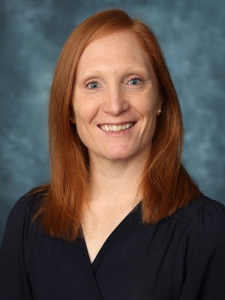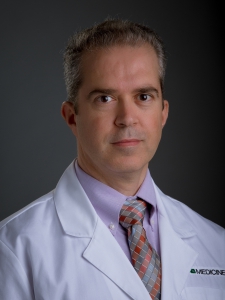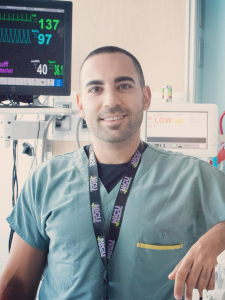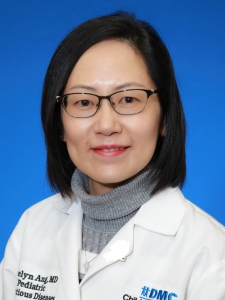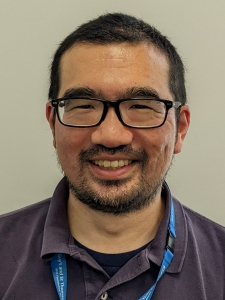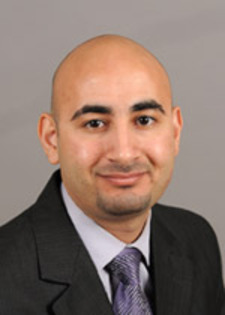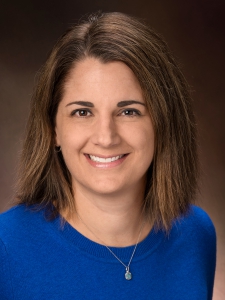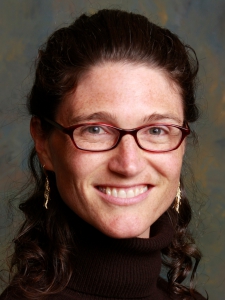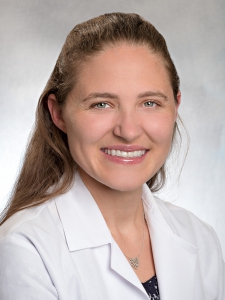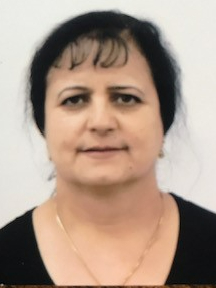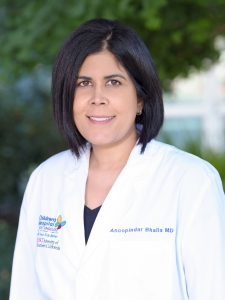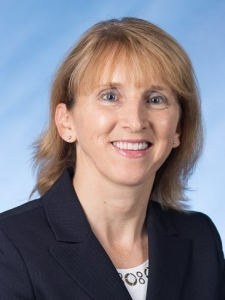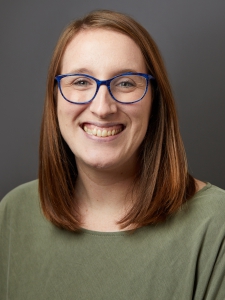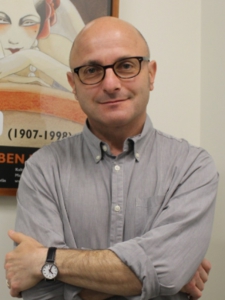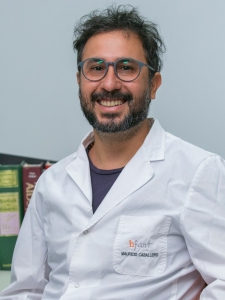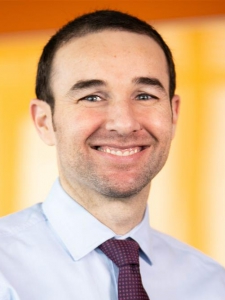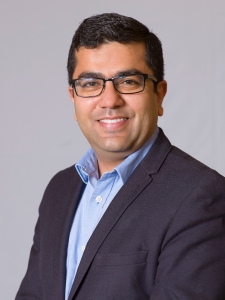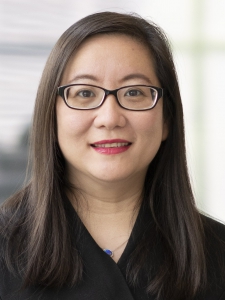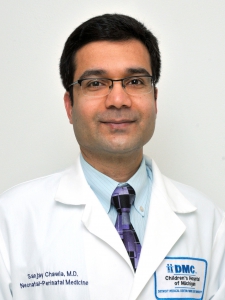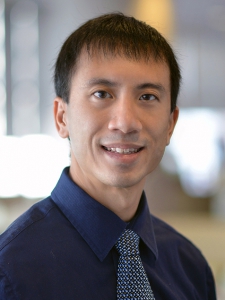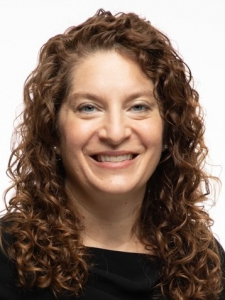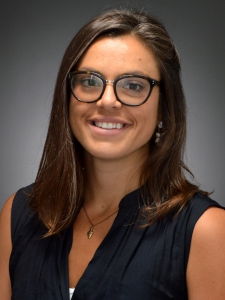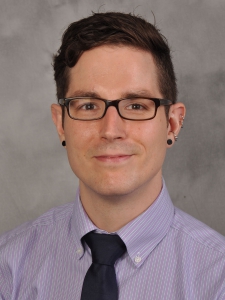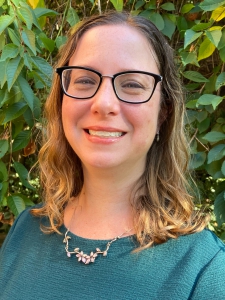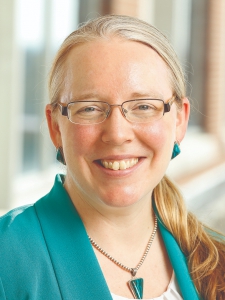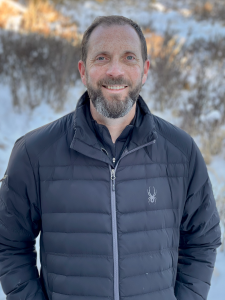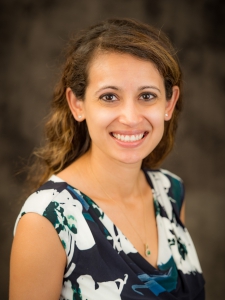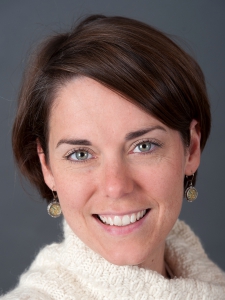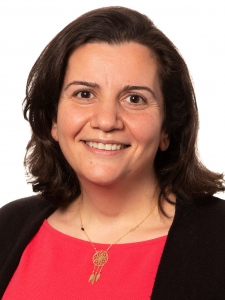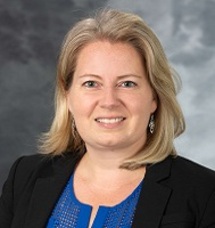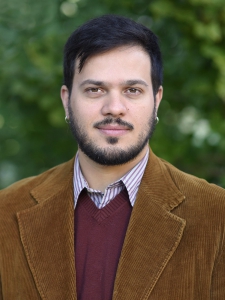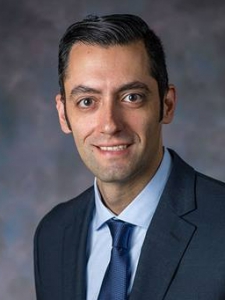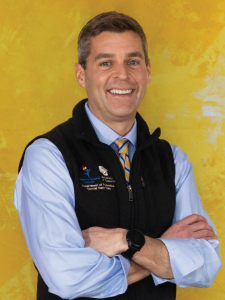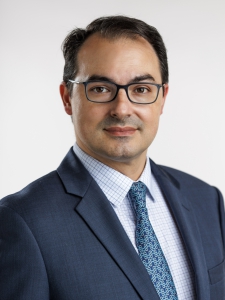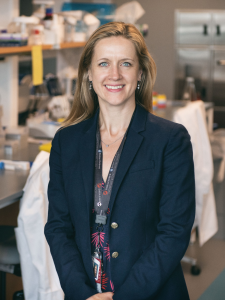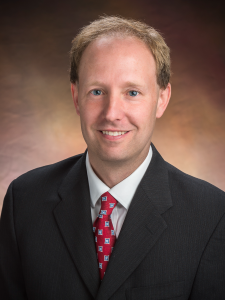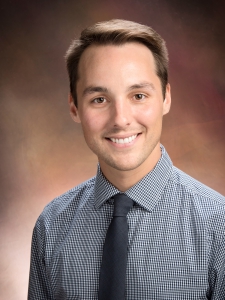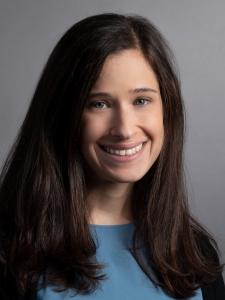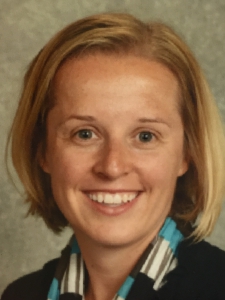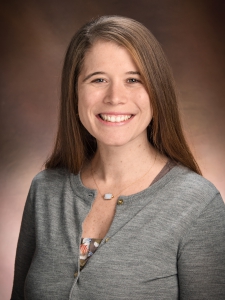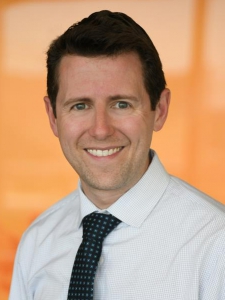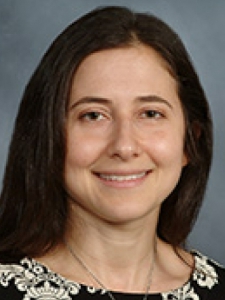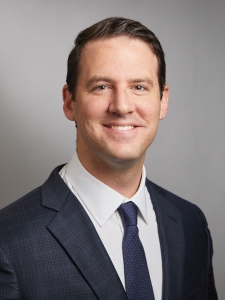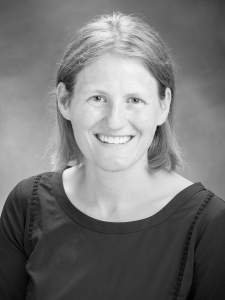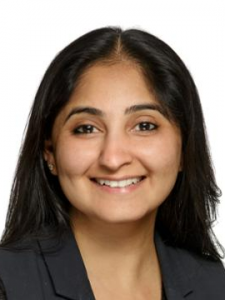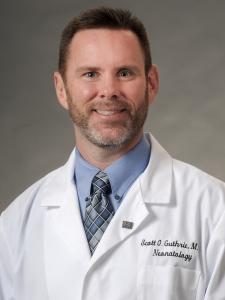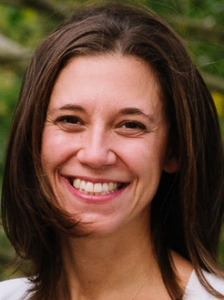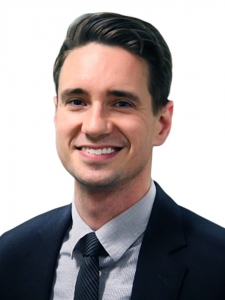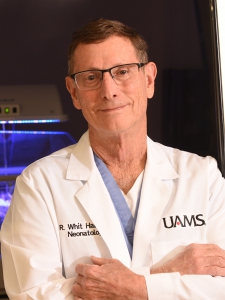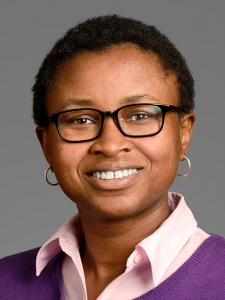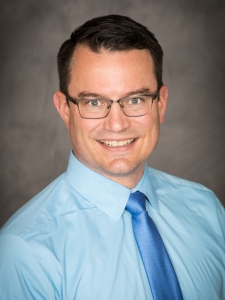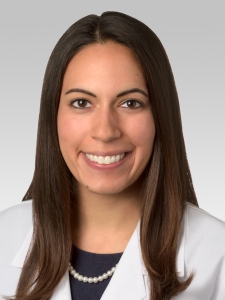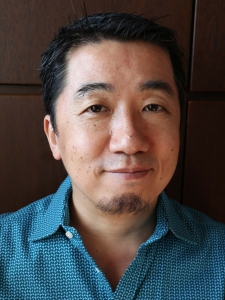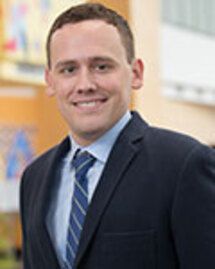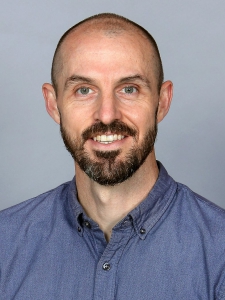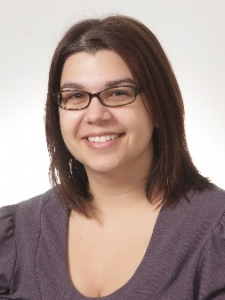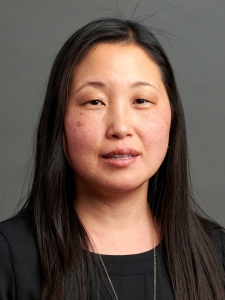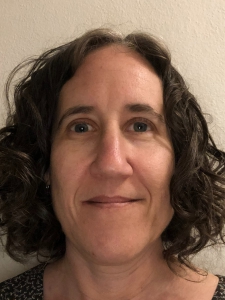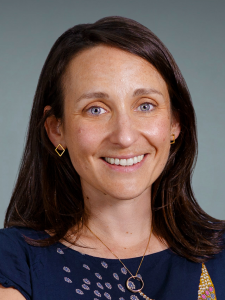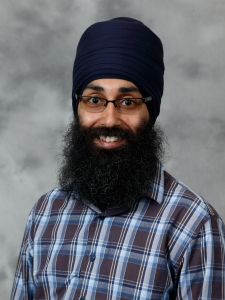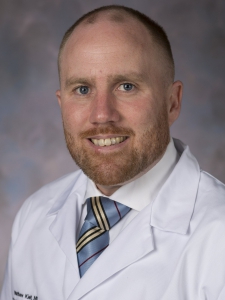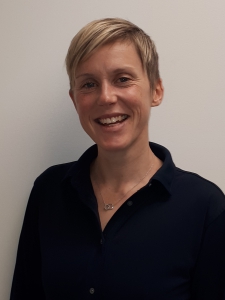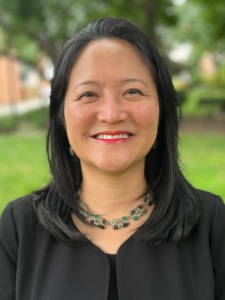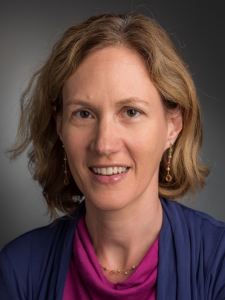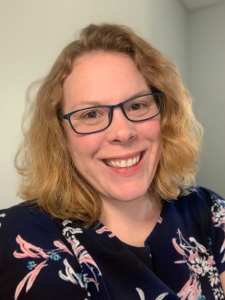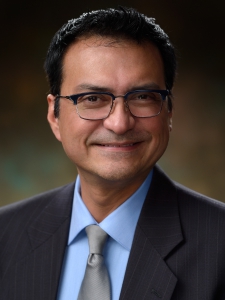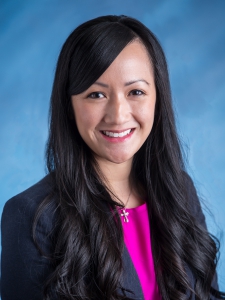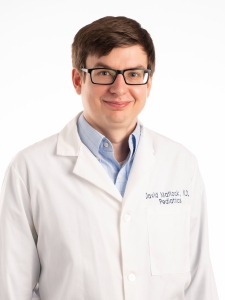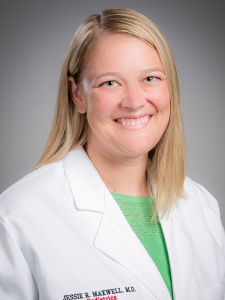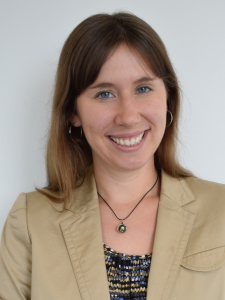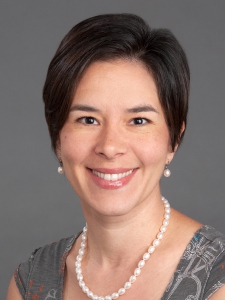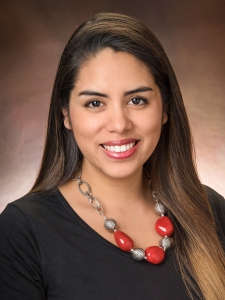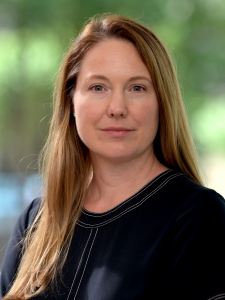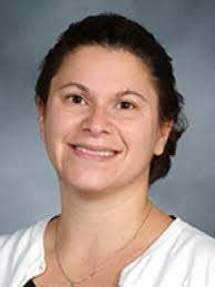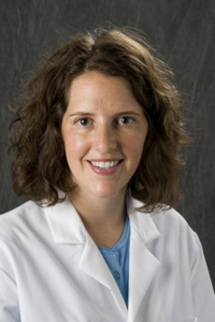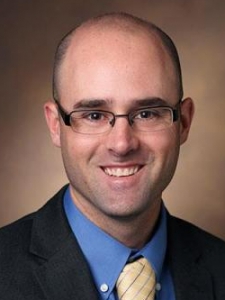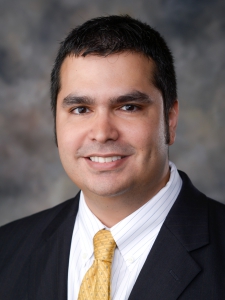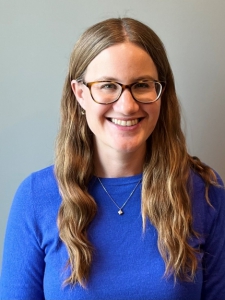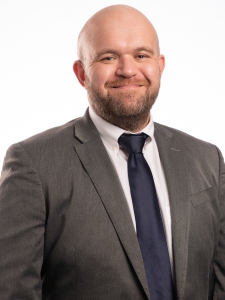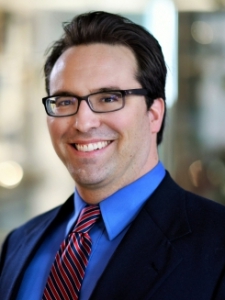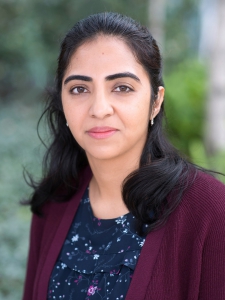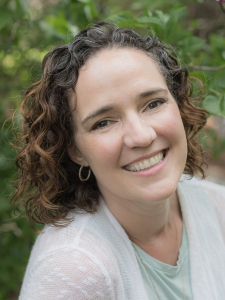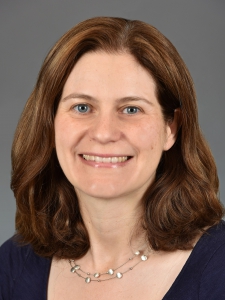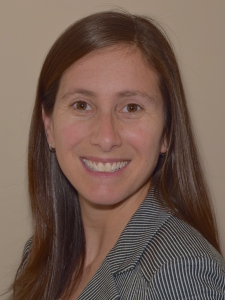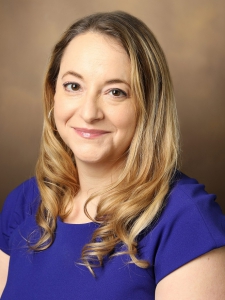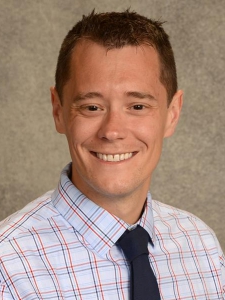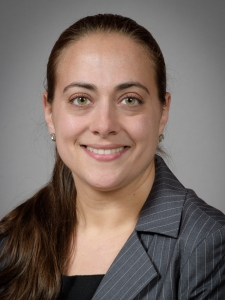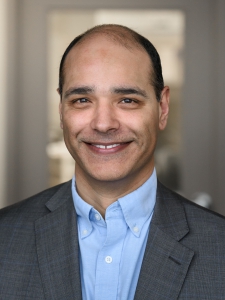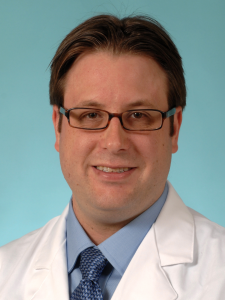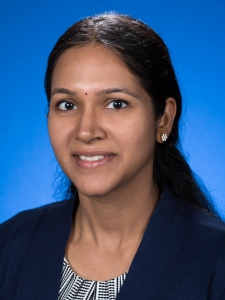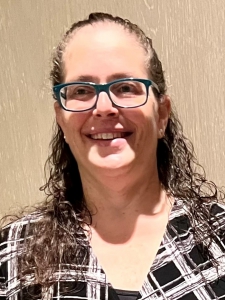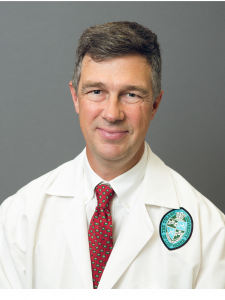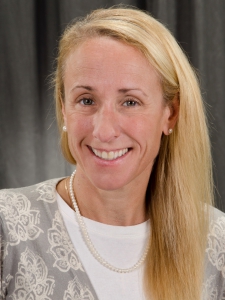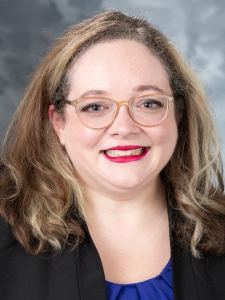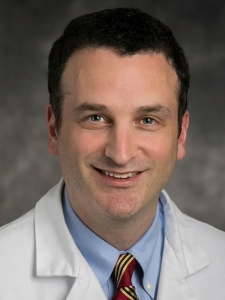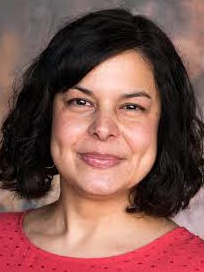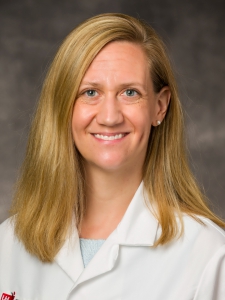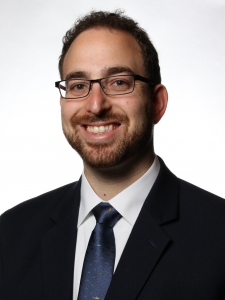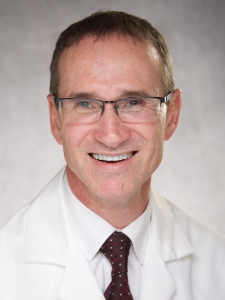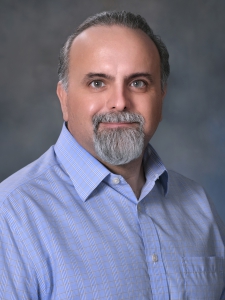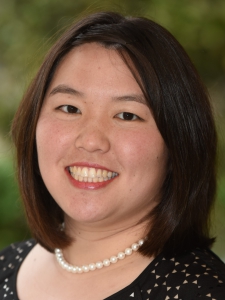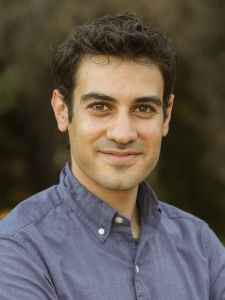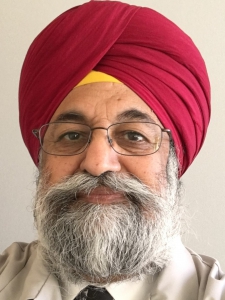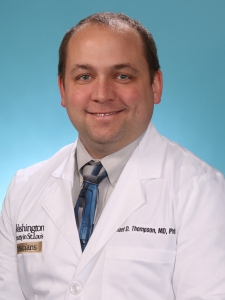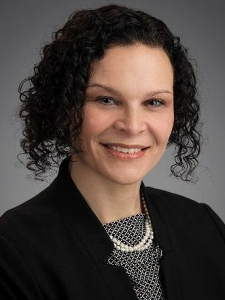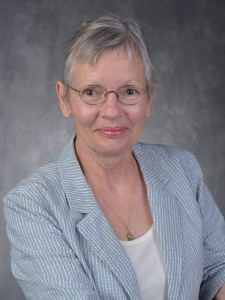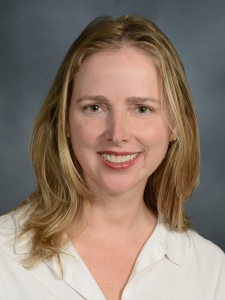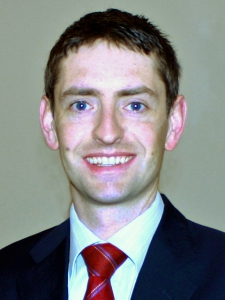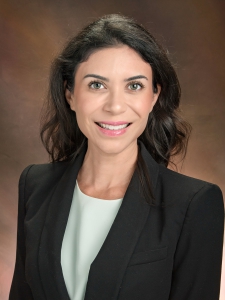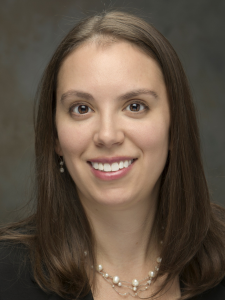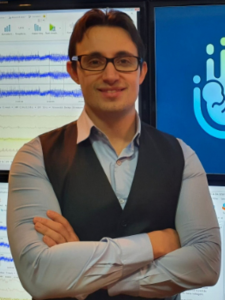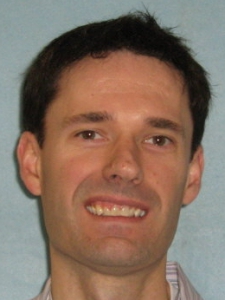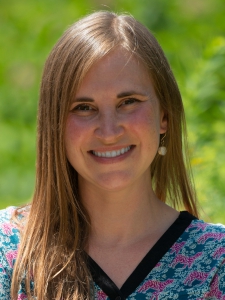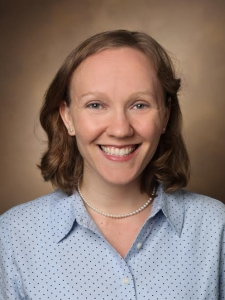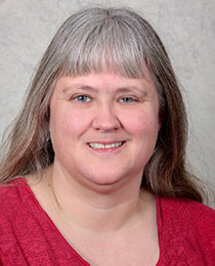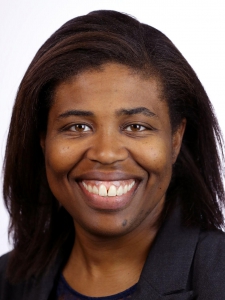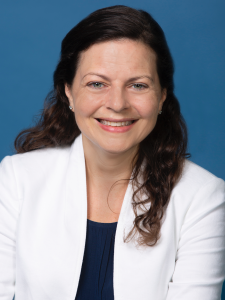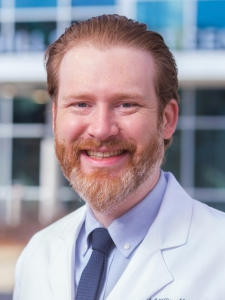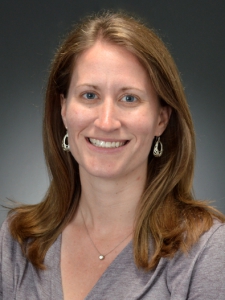Akhtar, Lisa
Ann & Robert H. Lurie Children’s Hospital of Chicago
Dr. Lisa Akhtar is an Infectious Diseases physician at the Ann & Robert H. Lurie Children’s Hospital of Chicago and Assistant Professor of Pediatrics at the Northwestern University Feinberg School of Medicine. Her research strives to understand the virus-host interactions that promote susceptibility of the pediatric brain to infection. The approach of her research program is to identify clinical viral isolates associated with pediatric infection and poor neurologic outcomes, and bring these isolates back to the lab to assess the mechanism by which this occurs. Dr. Akhtar uses viral whole genome sequencing, human and murine neuronal in vitro models, and murine in vivo models, as well as reverse genetics to understand clinical virulence factors. The current focus of the lab is to determine virulence factors contributing to neonatal herpes simples virus (HSV) encephalitis.
Alishlash, Ammar
Children’s of Alabama, University of Alabama at Birmingham
Dr. Alishlash is a board-certified Pediatric Pulmonologist. He joined the UAB Pediatric Pulmonary and Sleep Medicine Division as an Assistant Professor of Pediatrics in 2017. He is the medical director of the UAB-Children’s of Alabama Sickle Cell Disease Pediatric Pulmonary Program and the Comprehensive Pediatric Pulmonary hypertension Center. He is a clinician scientist, and his research focuses on pulmonary complications of SCD including clinical, translational, and basic research. His laboratory studies the risk factors and therapeutic targets of acute chest syndrome (ACS) and pulmonary hypertension. His research spans both the laboratory and clinical spectrum. In the wet lab, he recently published a manuscript that chlorine inhalation leads to ACS phenotype in the SCD mice with high mortality and that a single dose of hemopexin decreased the mortality in the SCD mice. The paper has been selected as the paper of month of August, and one of the most impactful papers of the year of 2021 by the NIEHS/NIH. Clinically, he established the association between nocturnal hypoxemia and both of ACS and executive function in children with SCD. He also uncovered the role of vitamin D deficiency during pregnancy on the lung development and function during childhood using a murine model. He is funded by an NIH R21 grant in addition to other grants.
Altit, Gabriel
Montreal Children’s Hospital – McGill University Health Centre
Dr Gabriel Altit completed his medical school at McGill University, followed by his Pediatric and Neonatology residencies at Université de Montréal. He pursued his training at McGill (Montreal Children’s Hospital [MUHC]) in echocardiography, pulmonary hypertension and bronchopulmonary dysplasia. Following that, he did a post-doctoral research training in the pediatric ECHO laboratory at Stanford University. He completed a MSc in Epidemiology at McGill (2017-2020). He joined back McGill University and the Montreal Children’s Hospital as a Neonatologist in October 2017. Since his appointment as clinician- scientist at the MUHC-RI, he has created the NeoCardioLab (www.neocardiolab.com). In 2020, he launched the Neonatal Hemodynamics Clinical Research Fellowship at McGill, for which he is the program director, with ECHO techniques applied to research questions. Further, the NeoCardioLab application is now available on IPhone, Ipad and Android. It offers numerous educational resources and is used by experts in the field daily, throughout the world. Dr Altit has been invited to multiple conferences (NeoHeart, AAP, PAS, UCSF PVD conference, CHOP-POCUS course, CDH International symposium) and has published numerous articles and book chapter in the cardiovascular aspects of prematurity, congenital diaphragmatic hernia, congenital heart defect and pulmonary hypertension. He has published on NIRS and echocardiography. He is part of the Canadian Pediatric Society (Fetus and Newborn).
Andersson, Ola
Lund University
Ola Andersson, an associate professor at Lund University, Sweden, and a consultant in Neonatology at Skåne University Hospital. His first study as PI compared the effects of early and delayed umbilical cord clamping after birth on newborn and infant blood status, iron stores and development. The studies showed that the delayed cord clamping group had a 90% reduction in iron deficiency at 4 months. In follow-up studies, children at 4 years of age had better fine motor skills after delayed cord clamping. An observational study regarding the time of cord clamping after a cesarean section showing a difference in the speed of the placental transfusion has been published. In a randomized study in Nepal, Ola Andersson has subsequently shown positive effects of delayed umbilical cord on newborns and infants, including lower risk of iron deficiency at 8 and reduced risk of anemia at 8 and 12 months. He published a pilot study demonstrating that maintained umbilical cord circulation during resuscitation leads to improved oxygenation and Apgar score. He has now started the randomized multi-center SAVE study in Sweden to evaluate the short- and long-term effects of resuscitation with an intact umbilical cord in term infants. Ola Andersson is the deputy chairman for the steering committee in the national multi-center study COPE (COVID-19 in Pregnancy and Early childhood) in Sweden and co-author on the Swedish national guidelines on Hyperbilirubinemia and Neonatal Resuscitation.
Ang, Jocelyn
Children’s Hospital of Michigan
Pediatric infectious diseases specialists play an important role in diagnosis, prevention, and management of pediatric infections. As such, they have several large and important roles. They have been at the forefront of addressing today’s various new infectious threats to our children’s health, including new emerging infections, issues with antimicrobial resistant organisms, hospital-acquired infections, infections in immunocompromised children and global outbreaks such as COVID-19 and Monkey Pox. At Children’s Hospital of Michigan, we advocate and care for our children in Detroit. I have successfully conducted clinical trials in the areas of antimicrobials, epidemiology of infectious diseases, neonatal infections and immunity and Kawasaki disease. The COVID-19 pandemic and the post-infectious Multisystem –Inflammatory Syndrome have disproportionately impacted our children in Detroit and highlighted the racial and ethnic minority underrepresentation in COVID-19 research. It is important to prioritize equitable access to research participation for our vulnerable minority children especially on the conditions that disproportionately impact them. Funds have been secured to conduct various research addressing the scientifically challenging problems related to pediatric COVID -19, particularly those that directly affect our vulnerable children.
Arichi, Tomoki
King’s College London, London, UK
Dr Tomoki Arichi is a MRC Clinician Scientist and Clinical Reader in the Centre for the Developing Brain, King’s College London. He received his PhD from Imperial College London in 2012, following the award of a Chain-Florey Fellowship from the MRC Clinical Sciences Centre. The work of his thesis under the supervision of Professor David Edwards and Professor Christian Beckmann focused on the optimisation of functional MRI techniques for studying activity in the newborn brain. He was appointed as an MRC Clinician Scientist in March 2017. Dr Arichi is also a Consultant in Paediatric Neurodisability in the Evelina London Children’s Hospital. His clinical work is focused on the early identification and resulting management of the disabilities associated with perinatal brain injury. Research interests: His current work aims to apply non-invasive imaging techniques (EEG, functional MRI and simultaneous EEG-fMRI, motion-tracking methods) to characterise the development of functional activity in the human brain, during fetal and preterm life and following brain injury. This is particularly focused on understanding how early somatosensory and motor processing relates to brain development and behaviour. He also holds a visiting position in the Human Robotics group at Imperial College London, where they are developing novel tools for use in the MRI scanner and automated rehabilitative strategies for young infants who have suffered brain injury.
Asfari, Ahmed
Children’s of Alabama, University of Alabama at Birmingham
Dr. Asfari is assistant professor of pediatrics , his research area of interest include : Extracorporeal Membrane Oxygenation and mechanical circulatory support, clinical and translational research for patient with congenital heart defects, congenital heart defects, post-surgical repair care protocols, quality improvement , acute lung injury post cardiopulmonary bypass and the role of biomarkers in prognosis and diagnosis. Currently, Dr.Asfari, is working on the validating the Proteoglycan 4 as a biomarkers for the severity of acute lung injury following cardiac surgery utilizing the cardiopulmonary bypass.
Ashwath, Ravi
University of Iowa Stead Family Children’s Hospital
Dr. Ravi Ashwath completed his MBBS in India, then residency in pediatrics at the Children’s Hospital, New York, then fellowship at Rainbow Babies and Children’s Hospital, Cleveland, where he was Chief Fellow. In 2007, he was appointed Assistant Professor at Case Western Reserve University. Advanced Imaging training was done at Boston Children’s Hospital from 2009–2010. He was the Fellowship Director and Cardiac MRI Director from 2009–2016 in Cleveland. At the University of Iowa, he has served as the Medical Director of Imaging, and Fellowship Director since 2019. He is a Clinical Professor of Pediatrics and is board certified in Pediatrics and Pediatric Cardiology. His research is in the application of novel sequences in cardiac MRI/CT. He works with 3-D printing models to assist in procedures of complex congenital heart disease patients. He started a novel 3D printing and Extended Reality (including Virtual reality) program. This not only helps surgeons but is helpful for trainees and families. He took part in the creation of models by segmenting and postprocessing with specialized software. He was recently involved in a project of a QR code assigned to the complex heart disease models, with the use of a smart phone. Images can be rotated and placed over the patient, which help understand complex defects. This technology is a “paradigm shift” and game changer. His interest also spans in virtual simulation and surgical planning leading to personalized medicine.
Avitabile, Catherine
Childrens Hospital of Philadelphia
Dr. Avitabile is an Assistant Professor of Pediatrics at the University of Pennsylvania Perelman School of Medicine and Attending Cardiologist and Pulmonary Hypertension expert at the Children’s Hospital of Philadelphia. She studies the impact of skeletal muscle deficits on exercise performance and functional capacity in children with cardiopulmonary disease as these deficits may be modifiable through exercise training. Her long-term career goal is to be an independent investigator who performs exercise interventions to improve skeletal muscle deficits, functional capacity, and quality of life in children with cardiac conditions. Dr. Avitabile recently completed a pilot exercise intervention in youth with single ventricle physiology funded by an NIH/NHLBI Pediatric Heart Network PHN Scholars Award. She is now applying this experience to children with pulmonary hypertension in whom she also described marked skeletal muscle deficits in association with poor exercise performance. Through her current NIH/NHLBI K23 Career Development Award (K23 HL150337-01A1) she is further studying physical inactivity and skeletal muscle deficits in children with pulmonary hypertension and will implement a pilot exercise intervention guided by mobile health technology in this population. Additionally, Dr. Avitabile collaborates with investigators in the Division of Neonatology to identify echocardiographic biomarkers in infants with developmental lung diseases and pulmonary hypertension.
Bakhoum, Christine
Yale-New Haven Children’s Hospital
Christine Bakhoum, MD, MAS is an Assistant Professor in the Section of Pediatric Nephrology at Yale University. Dr. Bakhoum grew up in Texas, where she graduated from Rice University and then obtained her medical degree from the University of Texas Medical Branch. She completed her residency training in Pediatrics at Northwell Health – Cohen Children’s Medical Center. She trained in pediatric nephrology at the University of California San Diego, where she also obtained her master’s degree in clinical research. She is a clinical investigator in the Clinical and Translational Research Accelerator (CTRA) at Yale. Dr. Bakhoum’s research is focused on hypertension and chronic kidney disease in children. She is currently investigating nocturnal blood pressure patterns and their relationship with outcomes in children with CKD. Her current work is funded by a K23 Award from the NIH (NIDDK) and a career development award from the American Heart Association. Dr. Bakhoum is also initiating a new area of research in evaluating DNA methylation as a biomarker of chronic kidney disease progression in children and is funded by the Yale O’Brien Kidney Center. Dr. Bakhoum also collaborates with other disciplines and is leading a project to evaluate the potential role of “retinal ischemic perivascular lesions” as a biomarker of cardiovascular disease.
Bandopadhayay, Pratiti
Boston Children’s Hospital, Dana-Farber Cancer Institute
Pratiti (Mimi) Bandopadhayay, MBBS, PhD, is a pediatric neuro-oncologist and scientist within the Dana-Farber/Boston Children’s Cancer and Blood Disorders Center, an Assistant Professor of pediatrics at the Harvard Medical School, and an Associate Member of the Broad Institute of MIT and Harvard. She also serves as the Director of the Pediatric Low-Grade Glioma Program at DFCI. Mimi was born and raised in Australia, where she completed her medical studies (Monash University), PhD (University of Melbourne), and specialty training in pediatrics and hematology/oncology, followed by further training in pediatric neuro-oncology. In 2011, Mimi joined the team at the Dana-Farber/Boston Children’s Cancer and Blood Disorders Center, where she completed subspecialty training in pediatric neuro-oncology, followed by post-doctoral training at Dana-Farber Cancer Institute and the Broad Institute. Mimi initiated her independent laboratory at DFCI in 2017, with a focus on applying genomics to identify and characterize drivers of childhood brain tumors. She has contributed to more than 70 peer reviewed publications and has received numerous awards including a NIH R37, the Broad Institute Excellence and Achievement Award, the Neuro-Oncology Investigator Award from the American Academy of Neurology, and multiple foundation awards. Together, the mission of the Bando Lab is find more effect and less toxic treatments for children diagnosed with brain tumors.
Bardach, Naomi
UCSF Benioff Children’s Hospital San Francisco
Dr. Bardach is a Professor of Pediatrics and Policy in the Department of Pediatrics and the Philip R. Lee Institute for Health Policy Studies at the University of California San Francisco and Vice Chair of Health Services Research in the Department of Pediatrics. Her research program is focused on improving the quality of inpatient and outpatient pediatric care, with a foundation in implementation and dissemination science. Content areas include patient and family engagement in inpatient safety using mobile phone technology, quality measure development and use, and value-based payment models to address health inequity. As PI of an NICHD-funded R01, she is collecting reports on patient safety events from family and patients in pediatric and adult inpatient units using a smartphone interface, making those reports rapidly available to clinicians and staff to inform safety efforts. As a lead co-investigator in an AHRQ U18 Pediatric Quality Measurement Program grant, she is refining asthma, sickle cell, and mental health measures for use in children’s Medicaid quality and value programs. During the COVID-19 pandemic, she conducted several seminal studies to inform efforts to re-open schools. In recognition of her passion and capacity for mentoring, she received the UCSF Academic Senate Distinction in Mentoring Award for Associate Professors in 2020. Dr. Bardach is a primary care pediatrician at Zuckerberg San Francisco General Hospital.
Bell, Katherine
Brigham and Women’s Hospital
Dr. Katherine Bell graduated summa cum laude from Dartmouth College with a Bachelor of Arts degree in Economics and Biophysical Chemistry. She obtained her MD from the University of California, San Diego, during which time she conducted research on pediatric neuromonitoring strategies. Dr. Bell completed her clinical training in pediatrics at UC San Francisco Benioff Children’s Hospital Oakland where she also served as Chief Resident, and was subsequently recruited into the Harvard Neonatal-Perinatal Fellowship Program, where she served as Chief Fellow. She is currently an attending neonatologist at Brigham and Women’s Hospital and Instructor of Pediatrics at Harvard Medical School. Dr. Bell’s clinical research investigates the associations of infant nutrition and body composition–the relative contribution of fat and lean mass to body weight–with long-term outcomes such as brain growth, neurodevelopment, and risk of obesity. Her work has been supported by the American Academy of Pediatrics, The Gerber Foundation, and Allen Foundation. Her current research interests include novel assessments of nutritional status for preterm infants, including body composition measurement, as well as the impact of macronutrient and micronutrient intake on brain development, neurodevelopmental outcomes, and cardiometabolic health.
Benny, Merline
Holtz Children’s Hospital Jackson Memorial Hospital
Dr. Merline Benny is an Assistant Professor in the division of Neonatology at the Holtz Children’s Hospital/ University of Miami. She is a physician-scientist interested in understanding the mechanisms of the early origins of vascular morbidities and cardiopulmonary diseases in preterm-born survivors. Her long-term goal is to translate her experimental laboratory research to develop novel strategies to prevent vascular morbidities and cardiopulmonary dysfunction in children and adults born preterm. Dr. Benny’s lab has expanded on the rodent model of neonatal hyperoxia to study the long-term impact of neonatal oxygen exposure on the systemic vasculature and cardio-vascular system. They have shown that endothelial injury, extracellular matrix remodeling and fibrosis are key contributors to vascular dysfunction in adult rodents exposed to neonatal hyperoxia. They also found that adult rats who were exposed to neonatal hyperoxia had increased aortic stiffness, left ventricular remodeling, hypertension, decreased exercise capacity and endurance. Her lab is currently studying the molecular mechanisms that modulate this chronic vascular dysfunction and developing drug targets for ameliorating the cardiovascular morbidities in preterm survivors. Her research is supported by NIH/K08 Career Development Award, Project Newborn, Stanley Glaser Award and Batchelor Award from University of Miami.
Bhagat, Indira
Children’s Hospital of Michigan
After completing my fellowship in Neonatal-Perinatal Medicine at the University of Wisconsin School of Medicine and Public Health, Madison, WI, I joined the University Pediatricians (which is currently affiliated with the Central Michigan University) in 2016. As an Associate Professor of Pediatrics on the clinician-educator track now, I spend a considerable amount of time attending the neonatal intensive care unit, and I carry a full share of in-house calls, but I have also managed to conduct clinical research, publish in peer-reviewed journals, mentor others for clinical research and scholarly activities, and participate in educational activities in the Neonatal-Perinatal division. I have a keen interest in evidence-based medicine and my hypothesis-based clinical research has addressed questions of importance in the everyday clinical practice of neonatal-perinatal medicine. The most prominent focus of my clinical research has been on neonatal neurologic issues in both the preterm and term infant, including intraventricular hemorrhage, hypoxic-ischemic encephalopathy, multiple organ dysfunction during therapeutic cooling, and on closely related issues such as acute kidney injury in asphyxiated infants.
Bhalla, Anoopindar
Children’s Hospital Los Angeles
Dr. Anoopindar Bhalla is a pediatric critical care physician, Associate Professor of Clinical Pediatrics, and clinical researcher at Children’s Hospital Los Angeles (CHLA) and the University of Southern California. Her research focuses on methods to improve care for mechanically ventilated critically ill children, particularly those with pediatric Acute Respiratory Distress Syndrome (ARDS). She has active studies in pediatric ARDS on epidemiology, pathophysiology, biomarkers, and post-intensive care unit recovery. She is currently funded through a K23 award from the NHLBI to investigate the association between ventilator management strategies and the development of new or progressive multiple organ dysfunction in pediatric ARDS. Dr. Bhalla plans to use her current observational studies to inform future clinical trials to test therapies to improve both short and long-term outcomes of pediatric ARDS.
Bhombal, Shazia
Lucile Packard Children’s Hospital Stanford
Dr. Shazia Bhombal is a dual trained, board-certified physician in Neonatal-Perinatal Medicine and Pediatric Cardiology, with clinical and research interests in neonatal hemodynamics and utilizing ultrasound in the neonatal intensive care unit (NICU). In her first academic appointment in 2012, she was Director of Neonatal Cardiology at the Center for Fetal and Neonatal Medicine at Children’s Hospital Los Angeles, CA. In 2015, Dr. Bhombal joined Lucile Packard Children’s Hospital (LPCH) as medical director of the NICU Heart Team. She facilitates collaborations at Stanford and in the Neonatal Heart Society, with publications on congenital heart disease and neonatal hemodynamics. A past mentee, Dr. Gabriel Altit, completed a post doc research year in the echocardiography lab at LPCH in 2017. Under Dr. Bhombal’s mentorship, they co-authored manuscripts on echocardiographic markers of neonatal pathology, including congenital diaphragmatic hernia and bronchopulmonary dysplasia (BPD). Leveraging skills gained during training, Dr. Bhombal introduced point of care ultrasound (POCUS) to the LPCH NICU. The early programmatic experience is highlighted in a recent senior author publication. Dr. Bhombal is co-founder and co-director of the LPCH CRIB team (Cardiac and Respiratory care of the Infant with BPD). As evidenced by her curriculum vitae, she is a highly sought invited speaker at regional and national conferences on topics including BPD, POCUS, and congenital heart disease.
Borsheim, Elisabet
Arkansas Children’s Hospital
Dr. Borsheim is a Professor in the Dept. of Pediatrics at University of Arkansas for Medical Sciences and a researcher at Arkansas Children’s. She is an Associate Director at the Arkansas Children’s Nutrition Center (ACNC). The USDA-ARS funds ACNC as one of six national human nutrition centers, the ACNC being one of only two focusing on children. Dr. Borsheim’s background is in physiology and metabolic research. Her main research focus is on the impact of pediatric nutrition and physical activity on cardiometabolic health during childhood and later in life, including identifying underlying biological mechanisms. The majority of her research is clinical, but she also has experience in pre-clinical studies. At ACNC, she leads a research unit on Physical Activity, Energetics and Metabolism (PAEM) and also directs a Physical Activity core. She directs the USDA-ARS Project Plan “Pediatric Physical Activity: Mechanisms Impacting Health and Development”. Further, she is the Director of the Metabolism and Bioenergetic Core in the Center for Childhood Obesity Prevention at the Arkansas Children’s Research Institute, which is supported by an NIH-Center of Biomedical Research Excellence award (NIGMS P20GM109096). Finally, she facilitates junior faculty research development, including mentoring at the Arkansas Children’s Research Institute, at the Dept. of Pediatrics, and also as Co-Director of the KL2 career development program at the UAMS Translational Research Institute.
Brown, Denver
Children’s National Health System
Denver D. Brown, M.D., completed pediatric training at New York Presbyterian–Weill Cornell and pediatric nephrology training at the Children’s Hospital at Montefiore. She is currently board certified in both Pediatrics and Pediatric Nephrology as well as a member of the American Society of Nephrology and the American Society of Pediatric Nephrology. Dr. Brown’s current clinical interests include chronic kidney disease (CKD), nephrotic syndrome, hypertension, and congenital kidney abnormalities. Her research has focused on the impact of chronic metabolic acidosis, particularly its relation to kidney disease progression and growth in children with CKD.
Buck, Catherine
Yale-New Haven Children’s Hospital, Yale School of Medicine
Dr. Buck is a Neonatologist and Assistant Professor of Pediatrics at Yale School of Medicine. Her NIH-funded research program is focused on understanding how metabolic exposures in the perinatal and early newborn environments influence growth and developmental outcomes in high-risk infants. Specifically, Dr. Buck is interested in understanding how obesity and diabetes in pregnancy influence adiposity development and cardiometabolic outcomes in moderate and late preterm infants. This clinical and translational work is a part of a broader neonatal nutrition research team in the Neonatal-Perinatal Medicine Division at Yale, which aims to improve growth and nutritional outcomes in all high risk infants (https://medicine.yale.edu/pediatrics/sections/neonatal-perinatal/research/nourish-program/).
Burgner, David
Murdoch Children’s Research Institute, Royal Children’s Hospital, Melbourne, Australia
Prof Burgner is a paediatric infectious diseases clinician scientist with >30 years’ experience. His expertise is in susceptibility to, and consequences of, childhood inflammation and infection and development of cardiometabolic risk. He trained in the UK and Australia with a PhD at Oxford University. His post-doctoral and clinical training was at Great Ormond Street and Imperial College UK. He holds an NHMRC Investigator Grant and is a Professorial Fellow at Melbourne and Monash Universities. He leads the Inflammatory Origins Group and co-leads the LifeCourse Flagship Initiative at Murdoch Children’s Research Institute. He is a paediatric infectious diseases physician at The Royal Children’s Hospital, Melbourne. He is a co-lead of large international data linkage initiatives related to infection and perinatal health, including an international meta-analysis of mode of birth and infection risk (>7 million births) and of the effects of pandemic restrictions on preterm birth and still birth (>52 million births). He is also internationally recognised for his work on infection, inflammation and cardiometabolic risk and disease. He is cardiovascular lead for sentinel national cohorts and collaborates extensively nationally and internationally . He has ~375 publications, publishing ~50 papers/year, plus 12 book chapters. ~$30 million in research funding, ~140 presentations, including >100 inter/national invited/keynote/plenary presentations. RACP Mentorship awardee.
Caballero, Mauricio
National Scientific and Technical Research Council of Argentina (CONICET)
Mauricio Caballero, MD MSc, is an Assistant Researcher at the National Scientific and Technical Research Council of Argentina. As a pediatrician with special interest in infectious disease, Mauricio laid the groundwork for effective measures of the risk factors and mechanisms of respiratory viruses’ disease in children in low settings of Argentina. His research has a particular focus on understanding the pathogenesis of severe and fatal cases after a lower respiratory tract infection due to respiratory syncytial virus. He has a solid background in molecular biology and epidemiology and his research skills are versatile with a clear premise of translating research data into action. For the past twelve years he has worked as coordinator, investigator, and project manager of several epidemiological and translational studies, mentoring undergraduate students and postdocs from several countries. Mauricio has been successful in building a large research network of public and private hospitals in Argentina and Latin America. He is a scientific director of a Translational Health Science Program in Buenos Aires Argentina of the Georgetown University.
Cara-Fuentes, Gabriel
Children’s Hospital Colorado
Dr Cara-Fuentes is a board certified pediatric nephrologist with a research focus on mechanisms of disease and novel treatments for childhood nephrotic syndrome. He combines human, cell and animal studies with the goal of discovering new and better therapies for this devastating group of diseases.
Chanchlani, Rahul
McMaster Children’s Hospital
Dr. Rahul Chanchlani is an Associate Professor in the Division of Nephrology, Department of Pediatrics at McMaster Children’s Hospital, Hamilton, Canada. He is an associate faculty in the Department of Health Research Methods, Evidence, and Impact (HEI), and cross appointed as a Scientist at ICES and at the Population Health Research Institute (PHRI), McMaster University. In addition to clinical and teaching commitments, Dr. Chanchlani has an established research program that aims to promote interdisciplinary collaborations among peers and experts to address key knowledge gaps in common kidney diseases such as acute kidney injury, kidney transplantation, hypertension and nephrotic syndrome among children. As principal investigator, his research program is supported by grants (~$3.5 million) from various local, provincial and national organizations including Canadian Institute of Health Research (CIHR) and Kidney Foundation of Canada. He has so far published >65 peer-reviewed papers and has supervised learners at all levels of training. Dr. Chanchlani is one of the 14 participants selected from 12 countries by the International Society of Nephrology for the Emerging Leader’s Program, which helps early-career nephrologists to become qualified for a leadership role in the advancement of global kidney care. He is the only North-American recipient of the prestigious Renee Habib Young Investigator Award from the International Pediatric Nephrology Association.
Chandrasekharan, Praveen
State University of New York at Buffalo
Praveen Chandrasekharan, MD, MS, is an Associate Professor of Pediatrics at the State University of New York at Buffalo. Since his fellowship days, his interest has been in translational science, evaluating the adaptation of cardio-pulmonary-neural aspects during the fetal transition at birth using both term and preterm models. As an attending neonatologist, he has published fifty peer-reviewed articles, serves as a reviewer for multiple journals and NIH, and has obtained grants from AAP NRP, ZOLL Foundation, NICHD, and NHLBI to support his research work. Recently, Praveen received an R01 grant from NICHD for his research proposal, ‘ Optimizing Chest Compressions for Bradycardia during Neonatal Resuscitation’. As a K12 implementation science scholar, he works on ‘Improving the Quality of Neonatal Resuscitation’. In addition, he serves as the respiratory medical director at the Oishei Children’s Hospital and continues to work on implementing protocols to reduce Bronchopulmonary Dysplasia in extremely premature neonates. Praveen continues working on his translational and implementation science projects along with his excellent lab team, colleagues, and fellows.
Chao, Hsiao-Tuan
Texas Children’s Hospital, Baylor College of Medicine
Dr. Hsiao-Tuan Chao is a physician-scientist in Child Neurology and Assistant Professor of Pediatrics, Molecular and Human Genetics, and Neuroscience at Baylor College of Medicine (BCM) and Texas Children’s Hospital. She is an Investigator at the Duncan Neurological Research Institute, a McNair Scholar with the McNair Medical Institute at The Robert and Janice McNair Foundation, and investigator with the Undiagnosed Diseases Network at BCM. Her research integrates deep clinical phenotyping and human genetics with mechanistic studies in fruit flies and mice to advance our understanding of the genetic, molecular, and neural circuit basis of neurodevelopmental disorders (NDDs). NDDs encompass a broad constellation of prevalent conditions including autism spectrum disorder (ASD), intellectual and developmental disabilities (IDD), and epilepsy. Through her basic and translational biomedical research efforts, Dr. Chao led and contributed to the discoveries of many NDDs, including EBF3-related HADD syndrome, EIF2AK1-related LEMPSAD syndrome, and EIF2AK2-related LEUDEN syndrome. She works closely with family advocacy groups and foundations to advance biomedical research for rare diseases. Her scientific contributions and achievements have been recognized with the NIH Director’s DP5 Early Independence Award, Burroughs Wellcome Fund Career Award for Medical Scientists, STAT News Wunderkind Award, and the Philip R. Dodge Young Investigator Award from the Child Neurology Society.
Chawla, Sanjay
Children’s Hospital of Michigan
Dr. Chawla completed his residency in Pediatrics and sub-specialty training in Neonatal-Perinatal Medicine at Children’s Hospital of Michigan. Dr. Chawla’s research has focused on neurodevelopmental outcome of at-risk neonates. Using NICHD NRN data; Dr. Chawla collaborated with colleagues to evaluate the role of antenatal steroids at 22 weeks of gestation. This study noted that exposure to a complete course of ANS at ≤22 weeks gestation was associated with higher survival and higher survival without major morbidity. Recently, in collaboration with NICHD NRN co-investigators, Dr. Chawla evaluated the association between administration-to-birth time interval of a single dose of betamethasone and outcomes among extremely preterm infants. Among infants born between 22 and 27 weeks GA after exposure to a single dose of antenatal betamethasone, each hour increase in the administration-to-birth interval exposure was associated with 4% higher odds of survival and survival without major neonatal morbidity. These findings have significant importance to both neonatologists and obstetricians. Dr. Chawla’s research interest also includes respiratory support of preterm infants and prediction of successful extubation. His research team developed clinical predictors of successful extubation (www.extubation.net). He is currently collaborating with other centers to further refine and validate this model.
Check, Jennifer
Wake Forest Baptist Health – Brenner Children’s Hospital
Dr. Check is a neonatologist at Brenner Children’s Hospital at Wake Forest. Her research interests are in long term growth and developmental/behavioral outcomes in high-risk infants, including infants born preterm and infants with in-utero substance/opioid exposure. In 2016, she completed her Master’s Degree with her thesis, Growth Outcomes of Very Low Birth Weight (VLBW) Infants at 18 months Corrected Age. She evaluated VLBW as a risk factor for abnormal growth trajectories in early childhood, including the impact of other neonatal comorbidities like chronic lung disease and fetal growth restriction. From there, she became involved in multicenter cohort studies including ELGAN (Extremely Low Gestational Age Newborns) and NOVI (Neurodevelopmental Outcomes in Very low birth weight Infants) that follow preterm infants throughout their childhood, investigating the impact of their neonatal course on long term health. In addition, she has successfully obtained grant funding through the HEAL initiative with two grants. Both studies follow newborns with in-utero opioid-exposure through their first 6 months of life. The first grant evaluates breastfeeding rates, clinic follow up rates, and neurodevelopment. The second grant built upon the first and evaluates infant neuroimaging through functional brain MRI along with neurobehavioral and neurodevelopmental outcomes during the first 6 months. She enjoys participation and involvement with such impactful and meaningful research.
Chinn, Ivan
Texas Children’s Hospital
Dr. Chinn joined Baylor College of Medicine in 2014 to become engaged in novel genetic discoveries in primary immune deficiency and dysregulatory disorders. His efforts led to the establishment of the Immunogenetics Program at Texas Children’s Hospital and Baylor College of Medicine, which Dr. Chinn leads as the Director. The Program uses the advanced genomic approaches available within the Baylor-Hopkins Center for Mendelian Genomics, Genomics Research Elucidates Genetics of Rare (GREGoR) project, and the Baylor Human Genome Sequencing Center to elucidate novel genetic mechanisms of primary immune disorders. Dr. Chinn is also a faculty member of the William T. Shearer Texas Children’s Hospital Center for Human Immunobiology and has assigned laboratory bench space and access to resources and equipment needed for basic science investigations. With support from the Jeffrey Modell Foundation at Texas Children’s Hospital, his laboratory is actively performing the work needed to functionally validate novel immunodeficiency-causing gene candidates identified through the Immunogenetics Program. In 2019, Dr. Chinn joined the ClinGen consortium as co-Chair of the Immunology Clinical Domain Working Group. He now serves as co-PI of a ClinGen project focused upon curating gene-disease validity and variant pathogenicity for severe combined immunodeficiency disease and combined immunodeficiency conditions.
Ciaccio, Christina
Comer Children’s Hospital at University of Chicago Medical Center
Dr. Christina E. Ciaccio MD, MSc is an Associate Professor of Pediatrics and Medicine at the University of Chicago and Chief of the Section of Allergy/Immunology and Pediatric Pulmonology. Dr. Ciaccio currently serves as the Director of the Center for Food Allergy Clinical Care, Education, and Translational Research (FACET) at the University and has a research interest in understanding how nutrition and microbial exposures influence IgE sensitization. Her work has been funded by both the NIH and foundation support. She has been appointed to several local and national positions within the field of Allergy/Immunology, including the American Board of Allergy and Immunology; the Editorial Board of the Annals of Allergy, Asthma, and Immunology; the Clinical Advisory Board Executive Committee of Food Allergy Research and Education (FARE) and currently serves as the Vice-Chair of the Food Allergy/EGID Interest Section of the American Academy of Allergy, Asthma, and Immunology (AAAAI). She has overseen over 20 clinical trials and has authored over 50 peer reviewed publications.
Cioffredi, Leigh-Anne
The University of Vermont Children’s Hospital
Dr. Cioffredi is a Pediatric Hospitalist and Clinical researcher with interest in the effect of the prenatal and early childhood environment on neurodevelopment and child wellbeing.
Craig, Andrew
Upstate Golisano Children’s Hospital
Dr. Craig is an Assistant Professor of Pediatrics, Behavior Analysis Studies, and Neuroscience and Physiology at SUNY Upstate Medical University (UMU). Dr. Craig received his PhD in Psychology from Utah State University in 2017. Next, he completed postdoctoral training at the University of Nebraska Medical Center in 2018 and UMU in 2019, where he gained experience applying behavioral principles to the assessment and treatment of severe behavior disorders in individuals with intellectual and developmental disabilities (IDD). His research focuses on understanding variables that contribute to persistence and relapse of operant behavior, impulsivity, and choice between competing sources of rewards. Based on his work in these areas, he was awarded the B. F. Skinner Foundation New Researcher Award from Division 25 of the American Psychological Association in 2020. At UMU, Dr. Craig is Director for Research in the Golisano Center for Special Needs, a multidisciplinary clinic that provides comprehensive services for pediatric populations with specialized needs such as IDD, developmental delays, and physical disabilities. In his clinical research, he aims to apply his expertise to better understand the factors that affect the success of treatments for problem behavior in individuals with IDD. He also co-ordinates the Behavior Analysis Murine laboratory at UMU, which is dedicated to translational research and bridge studies between behavior analysis, neuroscience, and genetics.
Culyba, Alison
UPMC Childrens Hospital of Pittsburgh, University of Pittsburgh
Dr. Culyba is a physician and violence prevention researcher with training in public health, epidemiology, internal medicine-pediatrics, and adolescent medicine. Her research focuses on interpersonal, contextual, and structural protective factors to reduce youth violence. Dr. Culyba’s current work models social networks to study associations between adolescent-adult connections and multiple forms of violence victimization and perpetration in a diverse, community-based sample of Pittsburgh youth. Through an implementation science framework, she seeks to translate these findings into a community- based violence prevention intervention that leverages connections and safeguards youth. Dr. Culyba also investigates novel methods to study how physical and social environments shape violence risk. As Director of the Empowering Teens to Thrive hospital-based violence intervention program for assault- injured youth at UPMC Children’s Hospital of Pittsburgh, Dr. Culyba provides medical follow-up and linkage to support services to promote recovery following violent injury.
Deavenport-Saman, Alexis
Children’s Hospital Los Angeles
Alexis Deavenport-Saman, DrPH, MPH is a Public Health Research Scientist and an Assistant Professor of Clinical Pediatrics at the Keck School of Medicine of USC who specializes in maternal and child health, social and behavioral health sciences, and the translation of evidence-based interventions into clinical practice and into the community. She researches maternal and child health disparities and health outcomes in vulnerable populations, including at the population-level, such as children with developmental disabilities (e.g. autism spectrum disorder and attention-deficit/ hyperactivity disorder), children involved with the child welfare system, and children with obesity. Dr. Deavenport-Saman works to promote health equity by conducting research and enhancing systems of care to ultimately promote optimal developmental outcomes for infants and children. She has also served a PI, Co-investigator or Director on NIH, CTSI, HRSA, and MCHB-funded grants. She has authored or co-authored numerous peer-reviewed publications, reviews, and book chapters.
Denney-Koelsch, Erin
Golisano Children’s Hospital at The University of Rochester Medical Center
Dr. Denney-Koelsch is a palliative care clinician with a program of research on pregnancies with life-limiting fetal conditions. She and her PhD nurse mentor and colleague (Dr. Denise Côté-Arsenault) have collaborated on many studies over the past decade. Their collaboration began with NINR R21 grant, “Parents’ Experiences of Pregnancy with Lethal Fetal Diagnoses.” Six papers and 11 abstracts have been accepted for presentation at international, national, regional, and local levels. In order to gain a deeper understanding of the roles, responsibilities and skills of the perinatal palliative care coordinator, Dr. Denney-Koelsch & Côté-Arsenault interviewed 12 expert care coordinators. In the past 2 years, her research team has just begun recruiting for a pilot study of the first telehealth parenting intervention for parents facing life-limiting fetal conditions. In the winter of 2021-’22, Dr. Denney-Koelsch was honored with a 6-month sabbatical to do an ethnographic study of perinatal bereavement rituals across U.S. cultures. This study involved dozens of interviews of care providers, faith leaders, funeral directors, support group leaders and of course bereaved parents. She also toured cemeteries, funeral homes, and memorial sites. She read numerous articles and books and is now writing the book, in collaboration with many of the experts she met and interviewed in the sabbatical, with a contract from Springer Nature Publishers.
Dietz, Robert
Children’s Hospital Colorado
Dr. Dietz is a neonatologist specializing in the study of restoring neuron al function following brain ischemia. He employs novel murine models of cardiac arrest and cardiopulmonary resuscitation to produce global cerebral ischemia. Using these models and studying long term function such as in hippocampal electrophysiology and learning and memory behavior, Dr. Dietz seeks to understand the changes in physiology that occur in the neurons that survive cerebral ischemia in order to restore their function. He hopes that his studies will yield new strategies to help his patients who survive hypoxic-ischemic encephalopathy to live rich nd full lives.
DSouza, Amber
Children’s Hospital of Illinois, University of Illinois College of Medicine Peoria
Dr. D’Souza is an Assistant Professor in Pediatric Hematology and Oncology. Her clinical and research interests include solid tumor malignancies with a special focus on liver tumors. She completed her residency at Children’s Hospital of Pittsburgh of UPMC in 2015 and pediatric hematology/oncology fellowship at Cincinnati Children’s Hospital Medical Center in 2018. Since completion of fellowship, Dr. D’Souza joined the faculty at University of Illinois College of Medicine Peoria where she works at the St. Jude Midwest Affiliate in Children’s Hospital of Illinois. In addition to her clinical activities in patient care, she has continued her basic science research in pediatric liver cancers and collaborates with Cincinnati Children’s Medical Center and St, John’s University. Dr. D’Souza’s achievements since becoming junior faculty include receiving the Jim and Katie Owens – OSF Professorship in Pediatric Oncology, which was designed to promote research in a junior faculty member. With help of these research funds, Dr. D’Souza recently published a first-author, collaborative paper looking at novel agents in the treatment of pediatric liver cancer. Dr. D’Souza was also awarded Faculty of the Year by the University of Illinois College of Medicine in 2021. She also has several IRB approved projects looking to develop pre-clinical solid tumor models and study COVID-19 response to immunization in pediatric oncology patients.
Duvall, Melody
Boston Children’s Hospital
Dr. Duvall is an Assistant Professor of Anaesthesia (Pediatrics) at Harvard Medical School and a physician-scientist trained in Immunology and Pediatric Critical Care Medicine at Boston Children’s Hospital and Brigham and Women’s Hospital. Dr. Duvall’s translational research focuses on innate immune pathways in diseases of airway and lung inflammation, in particular asthma and viral infections, with a focus on cellular and molecular pathways for the resolution of lung inflammation and injury. Her current NIH-funded research is focused on investigating the role of natural killer cells in the pathobiology of acute RSV-associated lung inflammation in critically ill infants and children with respiratory failure. She is also a co-investigator on the NHLBI-funded multicenter Severe Asthma Research Program (SARP) study where she investigates immune signatures of non-type 2 inflammation in severe asthma. The overarching goal of Dr. Duvall’s research is to generate insight into the pathobiology of diseases of lung inflammation to identify novel resolution pathways promising for future therapeutic development.
Dziorny, Adam
Golisano Children’s Hospital at The University of Rochester Medical Center
Adam received his B.S. in Biomedical Engineering and Computer Science at Johns Hopkins University. He earned his MD PhD from the University of Rochester and a certificate in Clinical Informatics at the Oregon Health and Science University. He completed his Pediatric residency at the Children’s Hospital of Philadelphia where he also was chief resident in pediatrics, and stayed on for his dual subspecialty training in Pediatric Critical Care and Clinical Informatics. He joined the University of Rochester faculty in 2020 and attends in the pediatric intensive care unit. His research interests lie at the intersection of data science and pediatric clinical care. His long-term goal is to improve the care quality and safety of critically ill children while reducing provider alert fatigue through personalized, generalizable, and usable clinical decision support (CDS). He is an active participant in multiple national collaboratives, including the Pediatric CDS Collaborative which focuses on shared approaches to optimizing pediatric decision support while mitigating alert fatigue. Additionally, he is the chair of the Pediatric Data Science and Analytics subgroup of the Pediatric Acute Lung Injury and Sepsis Investigators (PALISI) research network. He has developed a data-driven software platform to automatically attribute patients to trainees and has received several foundation grants to support this multi-institutional program to enhance graduate medical education.
El Feghaly, Rana
Children’s Mercy Hospitals and Clinics, University of Missouri Kansas City
Dr Rana El Feghaly is a pediatric infectious diseases physician, the infectious diseases clinical director, and the director of the outpatient antibiotic stewardship program at Children’s Mercy Kansas City. She is an Associate Professor of Pediatrics at the University of Missouri-Kansas City School of Medicine. Dr El Feghaly received her medical degree from the Lebanese University in 2006. Following pediatrics residency at the State University of New York Upstate Medical University in Syracuse, NY, she completed her pediatric infectious diseases fellowship at Washington University School of Medicine in St Louis, MO with a focus on translational research. She joined the staff at the University of Mississippi Medical Center in 2013 and completed her Master of Science in Clinical Investigation in 2017. Dr El Feghaly is leading SHARPS-OP, an international collaborative of over 57 pediatric institutions focused on improving antimicrobial stewardship in ambulatory settings. With her expertise in quality improvement, Dr El Feghaly’s research focuses on judicious use of antibiotics and diagnostic tests, and improving vaccinations in the outpatient setting. She is currently leading a project to allow benchmarking among 30 children’s hospitals nationally on metrics of antibiotic use in outpatient settings. She is also evaluating drivers of health inequities in antibiotic use, and developing quality improvement projects to decrease the gap.
Engen, Rachel
University of Wisconsin Madison
Dr. Rachel Engen is a pediatric nephrologist at the University of Wisconsin Madison, where she serves as the Medical Director of Pediatric Kidney Transplantation at American Family Children’s Hospital. Her primary area of research interest is pediatric kidney transplantation, focusing on long-term outcomes and the impact of antibody mediated rejection. Dr. Engen’s publications in this area have shown the ambiguities in interpreting donor specific antibody screening tests and the risks of using low-resolution human leukocyte antigen typing to impute eplets for transplant risk stratification. Ongoing research focuses on noninvasive markers for identifying subclinical graft inflammation. Dr. Engen also serves as the current vice-chair of the United Network for Organ Sharing Pediatric Transplantation Committee. Related to this, she has an interest in pediatric organ allocation policy, particularly the intersection between pediatric kidney allocation and pancreas/multiorgan allocation. Past research has helped to define the impact of the 2014 Kidney Allocation System changes on pediatric candidates, and ongoing research seeks to clarify the impact of multiorgan transplantation on pediatric kidney candidate wait times.
Espinoza, Juan
Children’s Hospital Los Angeles
After completing medical school at USC and pediatric residency at CHLA, Dr. Espinoza was appointed Assistant Professor of Clinical Pediatrics in the Division of General Pediatrics at CHLA in August of 2014. Since then, he has pursued his passions for data, technology, health equity, and global health in an environment that is uniquely suited to nurture each of them. Though these may seem like disparate or unrelated topics, they are intertwined as components of Dr. Espinoza’s overarching career goal as a physician, researcher, and advocate: to identify, refine, and innovate approaches to using data and technology to improve health outcomes and narrow the health gap faced by marginalized communities in the US and abroad. Dr. Espinoza’s research can broadly be grouped into four domains: 1) medical device regulation and development, 2) diabetes technology integration and implementation, 3) technology-driven health interventions, and 4) clinical and public health informatics. Each of these domains is infused with principles and applications of health equity and global health, and targets diseases that disproportionately impact marginalized and minoritized communities, like diabetes, asthma, obesity, and sickle cell disease. Dr. Espinoza engages in research activities across the translational spectrum, including hypothesis-driven clinical research, creation of technologies and technical resources, consensus development, and public health and public policy analysis.
Fathi, Omid
Nationwide Children’s Hospital
Dr. Omid Fathi is an attending neonatologist and Assistant Professor of Pediatrics at Nationwide Children’s Hospital in Columbus, OH. Shortly after starting his career at Nationwide Children’s Hospital, he also became the Medical Director of the Small Baby Program, where particular attention is given to preterm infants born at less than 27 weeks gestation. His scholarly and research activities since then have focused on the care of this vulnerable population. He was the site PI for a large NICHD-funded study investigating the use of darbepoetin for neuroprotection in very preterm infants. He has published on the factors influencing survival of extremely preterm infants within his institution, as well as early illness factors and their impact on neurodevelopment. In addition, he has also shown how using QI methodology can help reduce noxious stimuli in preterm infants, as well as how QI can be used to influence and improve newborn care within a regional network of small delivery centers. Dr. Fathi has been recognized as a leader in the care of the extremely preterm infant, having also published on the important components in building a successful small baby program. He has given both national and international presentations on the matter, and he is also involved with the Children’s Hospitals Neonatal Consortium as it relates to extremely preterm infants.
Feinstein, James
Children’s Hospital Colorado
Dr. James Feinstein is an Associate Professor in the Department of Pediatrics at the University of Colorado Anschutz Medical Campus and a Principal Investigator at ACCORDS (Adult and Child Consortium for Health Outcomes Research and Delivery Science). He practices as an Attending Primary Care Physician in the Children’s Hospital Colorado Special Care Clinic, a medical home for >5600 children with special healthcare needs, and he is the Pediatric Director of a nationally recognized Epidermolysis Bullosa Multidisciplinary Program for children with genetic skin blistering disorders. As a fellowship-trained health services researcher with over 15 years of experience, Dr. Feinstein has successfully led multiple epidemiological and health services research studies focused on children with medical complexity, neurologic impairment, and pediatric polypharmacy. He has co-authored 2 widely used classification systems to identify (1) children with complex chronic conditions (CCCs) and (2) children with severe neurological impairment (SNI). Dr. Feinstein’s long-term research goal is to improve medication safety and health outcomes for children with medical complexity, with a focus on implementing and evaluating patient-centric strategies to optimize the management of pediatric polypharmacy. To this end, Dr. Feinstein is currently the PI for a NICHD K23 Patient-Centered Career Development award to study the measurement of parent-reported symptoms in children exposed to polypharmacy.
Ferruzzi, Mario
Arkansas Children’s Hospital
Dr. Ferruzzi is a Professor and Chief of the Section of Developmental Nutrition in the Department of Pediatrics at the University of Arkansas for Medical Sciences (UAMS). He serves as Director of the Arkansas Children’s Nutrition Center (ACNC), a partnership between USDA-ARS, Arkansas Childrens and UAMS. Dr. Ferruzzi previously served on as a David H. Murdock Distinguished Professor at North Carolina State University’s Plants for Human Health Institute (2016-2021) and as a Professor of Food Science and Nutrition Science at Purdue University (2004-2016). Dr. Ferruzzi’s research interest interface agriculture, food, and nutrition sciences in the study of micronutrient and phytochemical bioavailability, metabolism and impact to human health. He focuses on strategies to improve the nutritional and functional quality of food products for at risk populations including children. This includes characterization of plants and staple foods for micronutrients (provitamin A, iron and zinc) and phytochemicals. He studies studying how plant genetics, food formulation and processing can be leveraged to improve the bioavailability and potential nutritional and health impacts of these foods and can be modified by food form. Dr. Ferruzzi’s efforts have also included significant international food and nutrition research and translational collaborations with leading academic and government research centers and institutions in Italy, Kenya, Malawi, Niger, Senegal and South Africa.
Filbin, Mariella
Boston Children’s Hospital, Dana-Farber Cancer Institute
Dr. Filbin’s research focuses on pediatric brain tumors, particularly the lethal high-grade gliomas and malignant embryonal brain tumors that are in greatest need of therapeutic improvements. She is especially interested in how the specific developmental and cellular contexts in which tumorigenic mutations arise shape the cellular hierarchy of the resulting tumors. This developmental “fingerprint” can then be used to design novel therapies that either enable differentiation of tumor cells so they are no longer proliferating, or induce tumor cell death. In her studies she is combining single-cell genetics and transcriptomics with gene editing-, epigenetic-, stem cell- and pharmacologic methods to identify these cellular states, hierarchies and networks underlying tumorigenesis, with the goal of establishing new druggable targets.
Fisher, Brian
Childrens Hospital of Philadelphia
Brian T. Fisher, DO, MPH, MSCE, is an Associate Professor of Pediatrics and Epidemiology at the Perelman School of Medicine at the University of Pennsylvania, Senior Scholar within the UPENN Center for Clinical Epidemiology and Biostatistics, and Associate Chair of Research at the Children’s Hospital of Philadelphia. He serves as the Chair of the Infectious Disease Domain within the Children’s Oncology Group and the Co-Director of the Pediatric Fungal Network. His specific area of research focus is the prevention and management of infections in children with malignancy and recipients of hematopoietic cell transplantation.
Flannery, Dustin
Childrens Hospital of Philadelphia, University of Pennsylvania
Dustin Daniel Flannery, DO, MSCE, is an attending physician at Children’s Hospital of Philadelphia (CHOP) and CHOP Newborn Care at Pennsylvania Hospital, an Assistant Professor of Pediatrics at the Perelman School of Medicine at the University of Pennsylvania, and a core faculty member in the CHOP Center for Pediatric Clinical Effectiveness. He received his medical degree from the Philadelphia College of Osteopathic Medicine and a Bachelor of Science with Honors from Virginia Tech. After completing Pediatrics residency and chief residency at Alfred I. DuPont Hospital for Children/Thomas Jefferson University Hospital, he completed a fellowship in Neonatal-Perinatal Medicine at CHOP. He is a graduate of the Pediatric Hospital Epidemiology and Outcomes Research Training (PHEOT) program, and the Master of Science in Clinical Epidemiology program at the University of Pennsylvania. His research interests are neonatal infectious diseases and antimicrobial stewardship. His current research projects involve 1) analyzing antimicrobial resistance patterns in neonatal intensive care units across the country; 2) analyzing contemporary maternal and neonatal seroepidemiology; and 3) identifying meaningful metrics of neonatal antibiotic use for more accurate inter-hospital comparison. He has received research funding from CHOP, National Institute of Child Health and Human Development (T32), Agency for Healthcare Research and Quality (K08), and Centers for Disease Control and Prevention.
Flom, Julie
Yale-New Haven Children’s Hospital
Dr. Flom is an Assistant Professor in the Section of Pulmonology, Allergy, Immunology & Sleep Medicine in the Department of Pediatrics at Yale School of Medicine and a board-certified Pediatrician and Allergist/Immunologist. Her research leverages her expertise in environmental, perinatal and chronic disease epidemiology and Implementation Science to develop, adapt and implement evidence-based interventions to prevent food allergy, asthma and other atopic conditions in General Pediatric and subspecialty settings. Dr. Flom has published extensively on the effect of early life exposures, including maternal asthma, tobacco smoke and diet in the prenatal and early childhood periods, on child health outcomes including risk of asthma and atopy. Dr. Flom is funded by the NIH to adapt and implement evidence-based interventions for treatment of tobacco use disorder in the General Pediatrics clinic. Dr. Flom is also investigating interventions in prenatal and pediatric care to support food allergy and asthma prevention.
Ford, Stephanie
UH Rainbow Babies & Children’s Hospital
Dr. Stephanie Ford earned her BA from Case Western Reserve University (CWRU), with honors in Biochemistry, then her MD from the CWRU School of Medicine. She then completed her pediatric residency and fellowship in Neonatal-Perinatal Medicine at Rainbow Babies and Children’s Hospital. Dr. Ford is a physician scientist with appointments at Rainbow Babies and Children’s Hospital Divisions of Neonatology and Pediatric Cardiology and CWRU School of Medicine. Her clinical and research interests center on the etiology and treatment of neonatal congenital heart diseases (CHDs) and pulmonary hypertension. Her research has focused on the effects of abnormal blood flow on early cardiac embryology. She was the first to determine that abnormal blood flow, without outside surgical or drug exposure, can have significant impact on the early tubular heart, leading to clinically significant CHDs. Dr. Ford is investigating the effects of prenatal alcohol exposure (PAE) on early cardiac blood flow and its links to CHDs. She is exploring how PAE causes epigenetic changes, how these changes relate to CHDs, and how PAE-induced CHDs can be prevented with prenatal supplements. Dr. Ford is also involved in clinical research, serving as site PI for pulmonary hypertension-related drug trials and as a lead investigator in quality improvement research related to severe bronchopulmonary dysplasia-related pulmonary hypertension. Her research is currently supported by the NIAAA and NHLBI at the NIH.
Gillam-Krakauer, Maria
Monroe Carell Jr. Children’s Hospital at Vanderbilt
Dr. Krakauer’s research centers on improving survival and outcomes of infants born extremely prematurely. In particular, she focuses on the management of patent ductus arteriosus (PDA) using retrospective and prospective clinical studies coupled with quality improvement methodology to improve survival and decrease intraventricular hemorrhage (IVH) in infants born less than 28 weeks. She began her research career studying mesenteric blood flow in extremely preterm infants and was a contributing member on the first study to compare outcomes in infants either fed or fasted while receiving treatment for PDA. She later studied the effects of a single dose of indomethacin given at 12 hours of age (a unique and long-standing practice at a single institution) to prevent PDA. During the process of examining the outcomes of the infants in these studies, Dr. Krakauer became acutely aware of potentially intervenable factors influencing the rates of IVH and survival in the most premature infants and the role of effective education and quality improvement. In 2019, she formed the Tiny Baby Team at Monroe Carell Jr. Children’s Hospital at Vanderbilt to improve survival and decrease IVH in infants born 22-27 weeks. The team has successfully implemented delayed cord clamping, and decreased hypothermia and IVH. Dr. Krakauer mentors residents and fellows in quality improvement and performs education research to better train the next generation of neonatologists.
Gist, Katja
Cincinnati Children’s Hospital Medical Center
Katja is triple board-certified pediatrician, cardiologist and intensivist. She completed her residency at Akron Children’s Hospital, cardiology Fellowship at the University of Colorado and Critical Care Medicine Fellowship at Cincinnati Children’s Hospital Medical Center. She spent the first 8 years of her career as a staff cardiac intensivist at the Children’s Hospital Colorado and University of Colorado where she developed and led the Pediatric Kidney Injury and Disease Stewardship Program encompassing critical care nephrology research on diagnostics and outcomes, teaching and quality improvement. During this time, she spearheaded the development of the Children’s Hospital Colorado Nephrotoxic Medication Stewardship Program and acute kidney injury alert. She recently joined the heart institute at Cincinnati Children’s Hospital Medical Center as an associate professor, staff cardiac intensivist and co-director of the center for acute card nephrology. She is program leader for several international acute kidney injury collaboratives, namely KIDMO (kidney interventions during membrane oxygenation), and WE-ROCK (Worldwide exploration of renal replacement outcomes collaborative in kidney disease) and is a steering committee member of the NEPHRON (Neonatal and Pediatric Heart and Renal Outcomes Network) and the (PP-AKI) Prospective Pediatric Acute Kidney Injury Collaborative. She has more than 90 peer reviewed publications and has won numerous awards for her research.
Gourishankar, Anand
Children’s National Health System
Dr. Anand Gourishankar is an attending physician at Children’s National Hospital. While serving as a Clinical Associate Professor of Pediatrics at George Washington University, he researches health geography and spatial science. Specific research focus areas involve pediatric health conditions, hospital-associated conditions, health equity, and environmental justice. In addition to general pediatric board certification in US and UK and specialty board in pediatric hospital medicine, Dr. Gourishankar has a master’s in Spatial analysis for public health. He mentors and advises medical students, pediatric residents, and fellows.
Green, Abby
St. Louis Children’s Hospital
Dr. Green is an Assistant Professor in the Department of Pediatrics at Washington University School of Medicine in St. Louis. She is a member of both the division of Hematology-Oncology and Infectious Diseases, and she is a founding member of the Pediatric Immunocompromised Infectious Diseases program at St. Louis Children’s Hospital. As a physician-scientist, Dr. Green’s lab studies the mechanisms of mutagenesis and DNA damage the promote cancer development and progression.
Green, Adam
Children’s Hospital Colorado
Adam Green, MD, is an Associate Professor of Pediatrics at the University of Colorado School of Medicine and an attending pediatric neuro-oncologist at Children’s Hospital Colorado. He completed his undergraduate degree in neurobiology at Dartmouth College and attended medical school at NYU. He served as a resident and chief resident in pediatrics at the University of Colorado and as a pediatric hematology-oncology fellow at Dana-Farber Cancer Institute and Boston Children’s Hospital. There, he trained in translational research in pediatric brain tumors with Drs. Andrew Kung and Stu Orkin, and in childhood cancer disparities with Dr. Carlos Rodriguez Galindo. His lab investigates novel targets and therapeutic strategies in the treatment of pediatric high-grade glioma (HGG). There are several clinical trials currently open or in development based on work from his lab. He also studies causes and interventions for demographic and socioeconomic outcomes disparities in childhood cancer.
Green, Cori
NewYork-Presbyterian Komansky Children’s Hospital
My long-term career goals are to improve the care of children with mental health problems through research on how to best integrate mental health care into pediatric practice by training pediatric providers. My research methodology has included surveys, concept mapping, quasi-experimental designs, and secondary analyses of large databases. In 2011 I conducted a needs assessment on the current state of pediatric mental health training. In 2016 I received a KL2 award from the Clinical Translational Center to understand the multiple perspectives of stakeholders on how to improve pediatric training through concept mapping methodology. Concurrently, I became a context expert for the American Board of Pediatrics to study mental health training and skills where we conducted three national surveys. I secured funding to build various aspects of our mental health program at Cornell; implementation of healthy steps program and the zero-suicide framework in our pediatric practice. I was just awarded a grant from United Health Care to fully integrated mental health provider for children ages 4-11 years old. We hypothesize that the more pediatric providers and trainees work alongside this integrated provider, the more competent they will become. My prior studies suggested working with onsite mental health specialists is the way to produce competent future pediatricians assess and manage pediatric mental health problems and improve access to care for youth.
Greenberg, Jason
Yale-New Haven Children’s Hospital
As a result of the substantial morbidity associated with pediatric CKD, Dr. Greenberg dedicates his research to improving the outcomes of children with CKD and to prevent AKI, as it is an important risk factor for CKD. Dr. Greenberg’s research has focused on the long-term risk of CKD after AKI in children as well as using biomarkers to predict or diagnose renal outcomes. His research is dedicated to identifying the optimal combination of biomarkers which best predict progression of CKD. Using biomarkers that represent the complex and multifactorial pathophysiology of CKD progression, his team is developing a panel to detect and quantify the spectrum of kidney injury. Ultimately, the biomarker panel will be used as surrogate outcomes in clinical trials, to enrich cohorts in early phase clinical trials, to predict response to therapy, and to predict long-term outcomes. Dr. Greenberg is also working to develop a real-time updated multivariable model which best predicts AKI in children. This model will allow pediatricians to identify a window of opportunity to treat patients after kidney injury has occurred, but before the creatinine rises. He is working to incorporate this risk prediction model into the electronic health record to identify children at risk for AKI in real time. Accordingly, his goal is to improve risk prediction for AKI and CKD, which will assist with clinical decision-making and improve outcomes in children.
Gregory, Emily
Childrens Hospital of Philadelphia
I am a primary care pediatrician and maternal-child health researcher with a focus on the interconception period. My research examines health care utilization and health behaviors during the interconception period and seeks to develop and evaluate interventions during to improve outcomes for women and children, particularly following birth complications. Focusing on the interconception period has the potential to improve health for women during subsequent pregnancies and throughout the life course, while also improving offspring outcomes. My research has identified gaps in preventive care for women in the interconception period, and confirmed that mother-infant dyads are seen more frequently in pediatric than in adult settings in the year after birth. These findings highlight the importance of leveraging pediatric systems to provide preventive services to mother-infant dyads. Innovative care strategies are particularly needed after complicated pregnancies, as women whose infants have chronic needs may be less likely to access their own preventive care. My current K23 from NICHD supports development of a manualized intervention to address gaps in interconception health care for women with a prior preterm birth. This intervention that will be embedded in pediatric health care and will seek to improve transitions of care and health care access, address modifiable health risks, and support wellbeing for mothers during the interconception health period.
Gulati, Ashima
Children’s National Health System
Ashima Gulati, MD, PhD is a pediatric nephrologist and physician-scientist with a clinical and research career path tailored towards integrating human genetic principles with clinical medicine specifically in the area of polycystic kidney disease. Her research is focused on employing state-of-the-art genetic analysis to prioritize and critically analyze human disease-causing and disease-modifying genetic variants for characterization in zebrafish and mouse model systems of polycystic kidney disease.
Guthrie, Scott
Monroe Carell Jr. Children’s Hospital at Vanderbilt
Dr. Guthrie is an associate professor, clinician, and clinical researcher who is based at the largest Vanderbilt Regional Affiliated NICU (VRAN) in Jackson, TN. He has been an author on over 30 peer-reviewed articles. He has focused on developing the Jackson VRAN into a clinical research site. Eleven papers were published as a result of his assistance with the PROP study on which he is a co-author. He was an author on the aerosolized surfactant study published in Pediatrics (2020). His site continues to be a part of the continued use protocol and he is currently the senior author and writing the paper associated with that effort. He has been one of the investigators on a phase 2 and now phase 3 trial investigating Lactobacillus reuteri to prevent necrotizing enterocolitis and will be helping author that paper when the study completes. He has extensive global health experience and has been involved in quality improvement work to improve surfactant use in low- and middle-income countries. He is the senior author on two recent publications describing the impact of the SALSA technique in low- and middle-income countries. He is also currently overseeing a quality improvement project which introduced SALSA to India. He also serves as the Infant Medical Director of the Tennessee Initiative of Perinatal Quality Care. The optimal cord clamping project is currently in progress and he will be first author on the publications that result from this work.
Guttmann, Katherine
The Mount Sinai Kravis Children’s Hospital
Katherine Guttmann, MD, MBE is an Assistant Professor at the Icahn School of Medicine and an attending neonatologist in the Mount Sinai Health System. She completed medical school at the University of Pennsylvania followed by residency and fellowship at the Children’s Hospital of Philadelphia where she also served as Chief Fellow. Dr. Guttmann is committed to improving communication between families of critically ill neonates and providers in the Neonatal Intensive Care Unit, especially surrounding prognosis and uncertainty. To that end, she conducts research aimed at better understanding how doctors communicate with families, and to work towards better communication, better parent experience, and better outcomes for babies and their families. She holds a Master’s degree in Bioethics from the University of Pennsylvania which informs her work. Dr. Guttmann is passionate about improving how families experience NICU hospitalization by improving communication.
Gyllenhammer, Lauren
University of California, Irvine, School of Medicine
Dr. Lauren Gyllenhammer is an Assistant Professor in the Department of Pediatrics, University of California, Irvine, School of Medicine. Dr. Gyllenhammer’s overarching academic goal is to carry out a program of research focused on the biological and psychological processes through which the early environment influences child health outcomes. The objective of her career is to significantly advance understanding of the origins (predictors and mechanisms) of childhood health and disease risk, with a specific emphasis on the elucidation of cellular mechanisms and the utilization of state-of-the-art imaging techniques. Dr. Gyllenhammer has expertise is in the area of maternal-fetal medicine and pediatric endocrinology and metabolism, with clinical research experience in the development and pathophysiology of childhood and adult obesity and type-2 diabetes. Her research integrates varied tools from cellular (gene expression, microscopy, primary cell culture) to whole body metabolism and physiology (in-vivo metabolism through oral glucose and intravenous glucose tolerance tests), in-vivo imaging through DXA and MRI and behavioral health (stress/cortisol, nutrition and physical activity interventions). She is the recipient of on ongoing NIH Pathway to Independence Career Development Award (HD-097302), which seeks to examine the role of maternal stress in fetal programming of child adipose tissue mass and distribution, and the mediating role of mitochondrial biology.
Hadland, Scott
MassGeneral Hospital for Children
Scott Hadland is the Chief of Adolescent and Young Adult Medicine at Mass General for Children and faculty at Harvard Medical School. He holds triple board certification in General Pediatrics, Adolescent Medicine, and Addiction Medicine. Dr. Hadland’s clinical and research interests focus on adolescent and young adult substance use disorder prevention and treatment, and on improving care for youth and families affected by substance use. His research and commentaries have been published in leading journals, including The Lancet, New England Journal of Medicine, BMJ, Pediatrics, and JAMA Pediatrics, and he has been featured in The New York Times, Washington Post, CNN, NBC News, National Public Radio, among other outlets. He was the 2020 recipient of the Emerging Leader Award in Adolescent Health from the American Academy of Pediatrics and is funded by the National Institute on Drug Abuse and other federal agencies and foundations. Dr. Hadland received his MD from Washington University in St. Louis, an MPH in Epidemiology and Biostatistics from the Johns Hopkins Bloomberg School of Public Health, and an MS in Health Policy and Management from the Harvard T. H. Chan School of Public Health. Dr. Hadland completed his pediatrics residency and chief residency at the Boston Combined Residency Program before pursuing fellowship training in Adolescent Medicine at Boston Children’s Hospital and completing the Pediatric Health Services Research Fellowship at Harvard Medical School.
Hall, Jeanine
Children’s Hospital Los Angeles
Dr. Jeanine Hall is a pediatric emergency medicine physician at Children’s Hospital Los Angeles with an Assistant Professor of Pediatrics faculty appointment at the University of Southern California Keck School of Medicine. She is board certified in Pediatric Emergency Medicine and Pediatrics. She graduated for Xavier University of Louisiana in 2003 then matriculated to the University of Missouri-Columbia School of Medicine where she received her medical degree in 2008. Dr. Hall went on to complete her pediatric resident at Cincinnati Children’s Hospital Medical Center in 2011 and her pediatric emergency medicine fellowship in 2016. Dr. Hall is a health services researcher with special interest in healthcare barriers, caregiver experiences within the healthcare system, and intervention development to address healthcare access barriers. She also holds an interest in process improvement, ED throughput and efficiency.
Hall, Richard
Arkansas Children’s Hospital
Dr. Hall received his MD from the University of Arkansas for Medical Sciences 1973 and completed a pediatric residency at Arkansas Children’s Hospital in 1976. He practiced 14 years as a community pediatrician before returning to academic medicine in 1990 for a neonatal-perinatal fellowship. He has practiced neonatology at the University of Arkansas for Medical Sciences and Arkansas Children’s Hospital since completing fellowship in 1993. Research interests include neonatal pain, telemedicine and infant mortality. His team completed the NEOPAIN trial and he published several papers from that data. He discovered that infant mortality and morbidity, as well as costs could be lowered through perinatal regionalization using telemedicine. He is responsible for Peds PLACE, a telemedicine educational project that brings the insight of “town and gown” together to foster learning opportunities for academic and community providers. I co-authored the AAP Technical Report on telemedicine in 2015. He is active in the March of Dimes, and past president of the local Ronald McDonald House, and the Arkansas Family Home. He chairs and is an executive member of the Section on Senior Medicine of the AAP. the Senior Interest Group at Arkansas Children’s Hospital. He loves playing on the water, hunting, fishing and other outdoor activities.
Hanners, Natasha
Children’s Health, UT Southwestern Medical Center
Dr. Hanners is an early career physician-scientist. As a pediatric resident, chief resident, pediatric infectious disease fellow, and now as a faculty member, Dr. Hanners developed and pursued her interest in encephalitis. She is interested in the pathophysiology and immune response to viral central nervous system (CNS) infections. Dr. Hanners’ research involves the investigation of interferon-stimulated genes (ISGs) for antiviral effects on neurotropic viruses including the flaviviruses West Nile (WNV) and Zika (ZIKV), as well as the alphavirus Venezuelan equine encephalitis (VEEV). Dr. Hanners has focused her research career on elucidating the molecular pathogenesis of Flavivirus CNS infections, as well as the innate immune response to such infections. She will also continue her clinical work in Pediatric Infectious Diseases, and has a particular interest in patients with CNS infections.
Harry, Onengiya
Wake Forest Baptist Health – Brenner Children’s Hospital
Dr. Harry is currently an Assistant Professor in both the Section of Pediatric Rheumatology and Division of Epidemiology & Prevention at Atrium Health Wake Forest – Brenner Children’s Hospital. The overarching goal of her research program is to enhance self-management in adolescents with rheumatic conditions, particularly those diagnosed with lupus. Dr. Harry’s research scope also includes increasing the number of underrepresented minorities participating in lupus clinical trials. She began her research program in fellowship by bridging the fields of pediatric adherence and pediatric rheumatology. This passion was ignited by the high number of adolescents with lupus non-adherent to their recommended treatment regimen. To better understand self-management in pediatric chronic conditions, she completed an NIH T32 funded research fellowship in Treatment Adherence. Dr. Harry also received a Clinical Research Fellowship (CRF) Scholarship to pursue a Master’s in Clinical and Translational Research. Armed with this knowledge, Dr. Harry identified barriers and facilitators of self-management from adolescents and young adults with lupus; and investigated how interventions can be designed targeting identified modifiable factors. She is now a 2021-2023 WF KL2 Scholar working on identifying family factors that may influence self-management in adolescents with lupus, and engaging adolescents in the development of a novel educational aid to address disease-specific knowledge deficits.
Heyming, Theodore
CHOC Children’s Hospital of Orange County
Theodore Heyming, MD is a pediatric emergency medicine physician at Children’s Hospital of Orange County (CHOC). Dr. Heyming joined CHOC after completing his medical degree at the University of California Los Angeles David Geffen School of Medicine. He then pursued residency in emergency medicine and fellowship in pediatric emergency medicine at Harbor-UCLA Medical Center. He currently serves as the Medical Director, Research Director, and Base Station Director within the Emergency Department at CHOC. Dr. Heyming was appointed as the Research Director in 2019 and has built the research program around the topics of pediatric pain and anxiety, injury and child maltreatment prevention, and implementation of machine learning models within the electronic medical record. Dr. Heyming has recruited several researchers into the program, including a PhD psychologist, biostatisticians, and quality improvement specialists. Importantly, Dr. Heyming’s research was essential to CHOC obtaining Level 1 Trauma Center designation in 2021. Dr. Heyming has been an extremely productive publisher in the field since his appointment. Several current active prospective studies include the following; utility of pupillary metrics in diagnosis and management of concussion in children, identification of social and environmental determinants of pediatric health in an emergency setting and referral utilization, and predictors and outcomes of anxiety surrounding invasive procedures in the pediatric ED.
Hoffmann, Jennifer
Ann & Robert H. Lurie Children’s Hospital of Chicago
Dr. Hoffmann is a pediatric emergency medicine physician and health services researcher at Ann & Robert H. Lurie Children’s Hospital and an Assistant Professor at Northwestern University. Her overall goal is to improve emergency care for children with mental health conditions. Her research has identified rising pediatric mental health ED visits, increases in ED boarding of children with mental health conditions, and geographic disparities in mental health outcomes. For instance, she found an association between U.S. county poverty concentration and youth suicide, and she demonstrated that mental health professional shortages at the county level are associated with youth suicides. Dr. Hoffmann’s work also extends to quality measure development and quality improvement. She has developed quality measures for pediatric agitation management in the ED, and she has used quality improvement methods to improve ED care for mental health conditions. She serves on the AAP Committee on Pediatric Emergency Medicine, which writes national policy statements for pediatric emergency care. She regularly uses data generated from her research in advocacy efforts to improve care for children experiencing mental health emergencies.
Hsieh, Helen
Stony Brook Children’s Hospital
Helen Hsieh, MD, PhD, is an assistant clinical professor in pediatric general surgery at Stony Brook University School of Medicine in New York. A physician scientist, her laboratory studies how necrotizing enterocolitis (NEC) affects neurodevelopment and behavior. Her clinical research focuses on understanding NEC during the neonatal period clinical markers and predictors of cognitive, behavioral and developmental changes seen in children who have survived NEC.
Isayama, Tetsuya
National Center for Child Health and Development (NCCHD),Tokyo, Japan
Dr Isayama is a neonatologist and clinical epidemiologist at the National Center for Child Health and Development, Tokyo, Japan. His research interests include (1) the international comparisons of medical systems, clinical practice and patients outcomes between countries or regions, (2) outcomes research of preterm infants, and (3) evidence syntheses (systematic review and clinical practice guidelines). In particular, he is interested in investigating the reasons why the outcomes of preterm infants are different between countries or regions as well as between units and how to improve the outcomes in some places by learning from other places with better outcomes. He completed his neonatology fellowship program of the University of Toronto, ON. He obtained his PhD at the McMaster University, Hamilton, ON. He is collaborating with many researchers and clinicians in the Neonatal Research Network of Japan (NRNJ), the Asian Neonatal Network Collaboration (AsianNeo), the International Network for Evaluation of Outcomes in neonates (iNeo), and the Neonatal Life Support Group of the International Liaison Committee on Resuscitation (ILCOR NLS).
Jackson, Wesley
North Carolina Children’s Hospital
Dr. Jackson grew up in North Texas and attended medical school at the University of Texas Southwestern Medical Center. Following pediatrics residency at the University of Alabama at Birmingham, he completed fellowship training in neonatology at the University of North Carolina (UNC) at Chapel Hill. In 2018, he joined the faculty at UNC as an Assistant Professor in the Division of Neonatal-Perinatal Medicine. Shortly after joining UNC for fellowship, he began working with his primary mentors, Matthew Laughon and Mike O’Shea, on clinical research focusing on the epidemiology of bronchopulmonary dysplasia in extremely preterm infants. While pursuing a Masters of Public Health degree during fellowship, he developed an interest in applying principles of population health and data analysis to address clinical knowledge gaps and improve outcomes in critically ill infants. Since joining faculty at UNC, he has expanded his research interests to include clinical trials operations, pharmacokinetic modeling, and epigenetic analyses. His career goal is to combine these interests to improve the outcomes of infants through drug development for diseases with limited available therapies, such as bronchopulmonary dysplasia and hypoxic–ischemic encephalopathy.
James, Scott
Children’s of Alabama, University of Alabama at Birmingham (UAB)
Scott H. James, MD is Associate Professor of Pediatrics in the Division of Pediatric Infectious Diseases at the University of Alabama at Birmingham (UAB). He serves as the UAB Peds ID Fellowship Program Director and is also Principal Investigator of the NIH-funded UAB Antiviral Screening Laboratory, where he leads a translational research program developing antiviral therapeutics. He earned two undergraduate degrees with honors from the University of Florida prior to completing medical school and pediatrics residency at the University of South Florida, followed by a Peds ID fellowship at UAB. He is a Co-Investigator on multiple clinical trials with the Congenital and Perinatal Infections Consortium. His work focuses on preclinical investigation of new and novel antiviral compounds, the emergence of antiviral resistance, and the design and conduct of clinical trials seeking to advance our understanding of antiviral therapies in infants and children. Dr James is a Fellow of the American Academy of Pediatrics and is an active member of medical and research societies, including the Pediatric Infectious Diseases Society (PIDS) and the Infectious Diseases Society of America. He has served on the PIDS Research Affairs Committee and is currently Chair-Elect of the Training Programs Committee. He is also a member of the PIDS Pediatric COVID-19 Therapies Task Force, a multidisciplinary team providing clinical practice guidance for the treatment of infants and children with COVID-19.
Jetton, Jennifer
Children’s Hospital of Wisconsin, University of Iowa Stead Family Children’s Hospital
Dr. Jetton is a pediatric nephrologist and Professor of Pediatrics. She completed her medical school, residency, and fellowship training at Baylor College of Medicine/Texas Children’s Hospital. She has worked for the last 12 years at the University of Iowa Stead Family Department of Pediatrics where she has been active in medical education, acute and chronic dialysis program development, and multi-center collaborative clinical research. She became an active investigator in the field of neonatal acute kidney injury (AKI) in 2011 through collaboration with Dr. David Askenazi. Her primary interests include describing the epidemiology of neonatal AKI, identifying AKI risk factors, providing kidney support therapy, and improving neonatal AKI definitions and monitoring protocols. She is also interested in understanding the long-term consequences of neonatal AKI in order to develop better guidance for pediatricians, pediatric nephrologists, and other primary care providers who follow these patients over the course of their lifetime. She serves as a steering committee member and Education Committee co-chair of the Neonatal Kidney Collaborative (NKC), a multi-center, multi-national consortium of nephrologists and neonatologists (www.babykidney.org). In September 2022, she will assume a new position as Section Chief of Pediatric Nephrology at the Medical College of Wisconsin/Children’s Wisconsin.
Kalaitzoglou, Evangelia
Kentucky Children’s Hospital, University of Kentucky
Dr. Kalaitzoglou is a Pediatric Endocrinologist whose research is focused on understanding and modifying aspects of diabetic muscle and bone disease, as they can be devastating over the lifetime of individuals with type 1 diabetes, who are mostly diagnosed with the disease during childhood. She received her medical degree (MD) with honors from the National and Kapodistrian University Medical School, in Athens, Greece. She completed a residency in Pediatrics at Penn State Hershey Medical Center, followed by a fellowship in Pediatric Endocrinology at the University of Oklahoma. She subsequently started working as an Assistant Professor of Pediatrics, Division of Endocrinology at the University of Kentucky (UK) in 2015. While she has been at UK she has received numerous awards, including the Helmsley Charitable Trust Award in T1D (Endocrine Society, 2017) and a Young Investigator Award from the Society for Bone and Mineral Research (ASBMR, 2021). During her academic career she has authored 22 abstracts and 14 peer reviewed manuscripts resulting from individual research efforts and several collaborations with nationally and internationally renowned researchers. Currently, she is a PI on a 5-year career development award from the NIDDK, which was awarded in 2021 titled “Muscle bone interaction and its role in diabetic bone disease of Type I diabetes”.
Kamimura-Nishimura, Kelly
Cincinnati Children’s Hospital Medical Center
Dr. Kamimura-Nishimura received her medical degree from the Universidad Nacional Mayor de San Marcos in Lima, Peru. She completed her Pediatrics residency training at Bronx-Lebanon Hospital Center/Albert Einstein Medical College, Bronx, NY and her Developmental and Behavioral Pediatrics Fellowship at Cincinnati Children’s Hospital Medical Center. She has also earned a Master of Science in Clinical and Translational Research from the University Of Cincinnati College Of Medicine. Dr. Kamimura-Nishimura joined the Faculty as an Assistant Professor of Pediatrics in 2016. Her main interest is on addressing health disparities in children with developmental disabilities and is currently on her second year of a K23 award project of developing a family navigator Intervention of Improve ADHD-Related Treatment (I2-ART) adherence for Latinx and Black children.
Kan, Kristin
Ann & Robert H. Lurie Children’s Hospital of Chicago
Dr. Kan’s career objective is to design and implement evidence-based, health-system interventions that can leverage innovative resources to support children with asthma. Following her medical education at Johns Hopkins School of Medicine and pediatric residency at the University of Washington, she was selected for the prestigious Robert Wood Johnson Foundation Clinical Scholars Program at the University of Michigan. She acquired a Master of Science in Health and Health Care Research and completed coursework to apply and hone skills in health services research methods. As a practicing primary care pediatrician, she learned early that supporting and providing care to families of children with chronic disease, like asthma, would be a core clinical role and research passion. Serving mostly low-income patients in her practice, she also witnessed a stark contrast between the state-of-the-art resources available at tertiary pediatric centers and access to these resources by families from her clinic. Dr. Kan recognized that the discrepancies in receipt of high-quality care indicated a need for purposeful innovation in the pediatric health care system. She is motivated to rethink the health care delivery of high-quality care for children with chronic diseases. Her long-term goal is to be an independent physician-investigator and leading expert in implementation research and health system interventions that improve the quality of care for children with chronic conditions.
Katznelson, Jessica
Johns Hopkins Children’s Center
Dr Katznelson has focused her research career on improving pediatric preparedness in rural critical access emergency departments (CAH ED). Her research has leveraged simulation to improve CAH ED staff comfort with, and preparedness for, critically ill children. With state and foundation funding, she created an in situ simulation program that was trialed in multiple CAH ED. Staff performance (using a validated checklist developed by Dr Katznelson and colleagues) and comfort levels improved with participation in the program. In order to overcome the barriers of time and distance associated with providing pediatric training in rural EDs, Dr Katznelson and a colleague collaborated to create a tele-simulation program which was run successfully, and well accepted by participants, at several CAH. Dr Katznelson was recently the PI an Agency for Healthcare Research and Quality R 18 looking at the impact of the tele-simulation program on pediatric quality of care markers. This study was completed in 2022 and manuscripts are currently being prepared for publication. Dr Katznelson is a founding member and sits on the advisory board of ImPACTS (Improving Pediatric Acute Care Through Simulation). ImPACTS is a national research collaborative that utilized simulation to evaluate pediatric preparedness and the quality of pediatric care at community based emergency departments.
Katzow, Michelle
Cohen Children’s Medical Center
Michelle Katzow is an assistant professor of pediatrics, a pediatric obesity medicine specialist, and a maternal-child health researcher at the Zucker School of Medicine at Hofstra/Northwell and Feinstein Institutes for Medical Research. Her current program of research is aimed at preventing child obesity in low-income, minority communities through innovative and scalable interventions. She has recently been awarded a career development award from the National Heart, Lung, and Blood Institutes (K23HL159326-01A1) which will fund her research program through 2027. The project aims to use community-based participatory research methods to systematically adapt an evidence-based child obesity prevention program to be delivered virtually through the Special Supplemental Nutrition Program for Women, Infants, and Children (WIC). These interests result directly from her prior research on families affected by obesity and health disparities, and preventative interventions for low-income communities. Additional research interests include: early antecedents of child obesity, including the protective effects of prenatal social support, the adverse effects of stress and material hardship, and the early parent-child relationship; racial and ethnic differences in stigma and quality of life for children with obesity; clinic-based interventions for building healthy habits in children with obesity; and telemedicine implementation and health disparities in the context of COVID-19.
Kazmerski, Traci
UPMC Childrens Hospital of Pittsburgh
Traci M. Kazmerski, MD, MS is an Assistant Professor at the University of Pittsburgh School of Medicine in the Department of Pediatrics and Division of Adolescent and Young Adult Medicine. She is a pediatric pulmonologist and health services researcher at UPMC Children’s Hospital of Pittsburgh and serves as the Chair of the institutional Transition Task Force. Her research centers on the improvement of comprehensive health care for adolescents and young adults with pediatric-onset chronic disease. As Vice Chair of the Cystic Fibrosis Foundation Therapeutics Development Network Sexual Health, Reproduction, and Gender Research (SHARING) Working Group, her current projects focus on improving the sexual and reproductive health care and understanding the impact of parenthood on people with cystic fibrosis (CF).
Khalsa, Amrik
Nationwide Children’s Hospital, The Ohio State University College of Medicine
Dr. Amrik Singh Khalsa is a primary care physician scientist with a career goal to improve cardiovascular health and reduce obesity through early prevention among families who belong to minority racial groups and are in low-income households. Dr. Khalsa is a dual medically trained and board certified in Internal Medicine and Pediatrics and has research expertise in observational research design, motivational interviewing, and maternal-child dyad interactions. His research activities to date have broadly focused on the role parents play in shaping their child’s diet and lifestyle behaviors starting in infancy and its effect on a child’s future risk of obesity and cardiovascular disease. Dr. Khalsa’s prior research includes a longitudinal observational study in a low-income population to determine the relationship between parental eating behaviors, infant feeding styles, and infant growth trajectories. In addition, he has examined the role physicians play in empowering families to initiate behavior change, including the rate at which physicians “prescribe” follow-up for dedicated behavior change counseling, the barriers physicians face in initiating lifestyle counseling, and pilot testing culturally appropriate tools to engage families from low-income households and minority racial backgrounds in behavior change counseling.
Khan, Janine
Ann & Robert H. Lurie Children’s Hospital of Chicago
Dr Janine Yasmin Khan is an Associate Professor of Pediatrics (Neonatology) at Northwestern University Feinberg School of Medicine, and an Attending Neonatologist at Ann & Robert H. Lurie Children’s Hospital of Chicago. Her postgraduate degrees were obtained from the UK (Member of the Royal College of Physicians of Ireland), and the US (American Board of Pediatrics). Dr Khan’s clinical specialty is in the care of high-risk infants, and her academic focus includes infants affected with perinatal and neonatal brain injury. She has been Site-PI for neuroprotective research studies: in term infants, the CoolCap Trial for infants with hypoxic-ischemic encephalopathy; in preterm infants, the PENUT Trial (Preterm Erythropoietin Neuroprotection Trial). Her current research involves three main areas: (1) neonatal neuroprotection (hypoxic-ischemic encephalopathy, intraventricular hemorrhage, effect of iron supplementation on neurodevelopmental outcome), (2) Acute renal failure and its sequelae in NICU patients, (3) global health initiatives aimed at reducing disparities in low/middle-income countries. She is also interested in U.S. trends in neonatal opioid withdrawal, and racial disparities in neonatal care.
Kielt, Matthew
Nationwide Children’s Hospital
Dr. Kielt is an Assistant Professor of Pediatrics at The Ohio State University College of Medicine and an attending neonatologist at Nationwide Children’s Hospital. His research focuses on improving long-term respiratory outcomes for infants with established bronchopulmonary dysplasia by understanding how chronic exposure to mechanical ventilation associates with lung-specific inflammatory responses and longitudinal respiratory disease trajectories in infants born extremely preterm.
Kieran, Emily
British Columbia Children’s and Women’s Hospital
Dr. Emily Kieran completed her general pediatrics training in Ireland and PhD from University College Dublin; (Thesis title; Central vascular catheter use in Newborn infants). She completed a fellowship in Neonatal-Perinatal Medicine at the University of British Columbia, Vancouver, Canada. In January 2018 Dr. Kieran was appointed Neonatologist & Medical Lead, Neonatal Complex Care Program in the Division of Neonatology, British Columbia Women’s Hospital and Clinical Assistant Professor, Department of Pediatrics at The University of British Columbia. Dr. Kieran’s areas of clinical and research interest are the care of Newborns with chronic lung disease, Neonatal Intensive Care (NICU) graduates with complex medical needs, in particular those who are discharged from NICU on home respiratory support. Additionally, she has a passion for the improvement and enhancement of communication with families in the NICU and ensuring staff incorporate each family’s individual values and goals into conversations and daily interactions. She is driving Quality Improvement work in this topic across tertiary level NICU’s across British Columbia.
Kim, Julia
Johns Hopkins Children’s Center
Julia Kim, MD, MPH is a general academic pediatrician and an assistant professor in Pediatrics and Health Policy and Management at the Johns Hopkins University School of Medicine and Bloomberg School of Public Health. She serves as the Associate Vice Chair of Pediatric Ambulatory Quality and Safety and co-directs the Armstrong Institute for Patient Safety and Quality Leadership Academy. Her research focuses on pediatric ambulatory quality, patient safety, quality improvement, patient and family engagement, human factors, medication safety, and improving primary care delivery.
Knoechel, Birgit
Boston Children’s Hospital
As a pediatric oncologist and physician-scientist at Dana-Farber/Boston Children’s Cancer and Blood Disorders Center, Dr. Knoechel’s research focuses on the role of epigenetic dependencies in pediatric cancers, their implications for drug resistance and how they shape interactions with the tumor microenvironment. Dr. Knoechel has received graduate and postgraduate research training in Immunology and Cancer Epigenetics and her clinical expertise is in pediatric hematological malignancies. In addition to her time devoted to research, she provides clinical care for children with hematologic malignancies. Dr. Knoechel’s research has defined chromatin state changes that promote therapeutic resistance in T-cell acute lymphoblastic leukemia, a high-risk leukemia in children and young adults and discovered strategies to exploit epigenetic dependencies therapeutically. She has determined the epigenetic consequences of genomic rearrangements of transcription factors in pediatric cancers and identified cellular plasticity resulting in co-existing stem-like states as the basis for drug resistance. These studies have immediate implications for developing novel therapeutic targets for translation into early phase clinical trials.
Kua, Kok Lim
Riley Hospital for Children at Indiana University Health
Dr. Kua is an Assistant Professor of Pediatrics at Indiana University and a basic scientist at the Pediatric Diabetes Research Group of Wells Center for Pediatric Research. He is also a member of the Center for Diabetes and Metabolic Diseases at the Indiana University School of Medicine. His research focuses to understanding the molecular mechanisms underlying maternal-neonatal diabetes transmission and to identify a novel therapeutic target that prevents the risk of transmitting diabetes to offspring.
Law, Ian
University of Iowa Stead Family Children’s Hospital
Dr. Ian Law is a Professor of pediatrics at the University of Iowa Stead family Children’s Hospital. He obtained his undergrad BSE in Biomedical Engineering and MD at The University of Iowa followed by Pediatric Residency, Pediatric Cardiology Fellowship and Pediatric Electrophysiology Fellowship at The University of Michigan. He returned to the University of Iowa in 2000 and has been the Director of Pediatric Electrophysiology since 2002 and Division Director of Pediatric Cardiology since 2013. Dr. Law’s clinical interests include the management of pediatric and congenital arrhythmias with specialty in diagnostic and interventional electrophysiology procedures as well as device management (pacemakers, implantable cardioverter defibrillators, implantable loop recorder). His research interests mirror his clinical activity including retrospective and prospective studies involving arrhythmia management and device therapy. He has participated in the publication of over 80 peer-reviewed manuscripts and 17 book chapters.
Leon, Rachel
Children’s Health
Rachel León is an Assistant Professor of Pediatrics in the Division of Neonatal-Perinatal Medicine with a doctorate in basic neuroscience. Her research program focuses on the emerging field of neuroplacentology, which seeks to understand placental influences on fetal brain development. Rachel is particularly interested in placental hemodynamic influences on brain development in fetuses with complex congenital heart disease and she is using advanced placental and fetal magnetic resonance imaging to study the placenta-brain connection. In the three years since her appointment on faculty at UT Southwestern, Rachel has worked to establish her research program with a total of 9 manuscripts published, an invited talk at the Cardiac Neurodevelopmental Outcomes Collaborative annual conference, and multiple grant successes in the form of internal funding from the Children’s Health Clinical Research Advisory Council, UT Southwestern Circle of Friends Pilot Synergy Grant, the UT Southwestern Fund to Retain Clinical Scientists, and an NIH Loan Repayment Grant. Most recently, Rachel received a promising score on her K23 resubmission grant. Rachel’s academic journey has always focused on becoming an independent investigator with strong collaborations across disciplines and a focus on team science. She looks forward to participating in all of the support and resources offered by SPR and to give back to the research community that has bolstered her in her scientific journey thus far.
Lin, Jody
Primary Children’s Hospital
Jody Lin, MD, MS is an Assistant Professor in the Division of Pediatric Hospital Medicine at the University of Utah. Her research focuses on improving outcomes for children with medical complexity, particularly through shared decision making. Her work blends traditional health services research methods with health communication and human centered design approaches. Dr. Lin is currently funded by a K23 from NIAMS titled, “Developing an innovative decision support tool for pediatric neuromuscular scoliosis.” Dr. Lin hopes to develop tools that provide high quality, evidence-based pediatric care that also elevate the voices of patients and their caregivers during medical decision making. Dr. Lin received her medical training at the University of California, Irvine followed by general pediatrics residency at Baylor College of Medicine/Texas Children’s Hospital. Subsequently she completed dual fellowships in pediatric hospital medicine and health systems design at Stanford University. Before joining the University of Utah, she served as a Clinical Instructor at Stanford University, where she also successfully competed for a KL2 through which she obtained an MS in health policy. Nationally, Dr. Lin serves as Co-Chair of the Academic Pediatric Association Patient- and Family-Centered Care SIG and as Co-Chair of the Society for Medical Decision Making pediatric interest group, the Decision Sciences for Child Health Collaborative (DSCCo).
Macias, Charles
UH Rainbow Babies & Children’s Hospital
Dr. Macias conducts research in pediatric quality improvement (QI) with focus on specific disease processes employing traditional research methodologies (e.g. pediatric respiratory illnesses and sepsis). His contributions to research infrastructures have included founding and/or leadership roles in the global Pediatric Emergency Research Network, the Pediatric Emergency Medicine Collaborative Research Committee, the Pediatric Emergency Care Applied Research Network, and institutional research programs, inclusive of leading national research data centers. These infrastructures have grown portfolios of millions of dollars in federal research grants through his leadership, co-leadership, participation and mentorship. He has led QI collaboratives and driven QI research related to those collaborative topics. His work in pediatric sepsis and related collaboratives have influenced real-time outcomes in morbidity and mortality while concurrently growing the evidence. This work has been leveraged for new surveillance definitions of pediatric sepsis and for prospective sepsis identification. He has applied these broader principles of improvement science for transformation in evidence generation and the growth of new researchers through large grants in pediatric and disaster readiness (Pediatric Pandemic Network, ASPR Pediatric Disaster Center of Excellence, and EMS for Children Innovation and Improvement Center).
Mack, Joana
Arkansas Children’s Hospital
Dr. Mack is a site co-investigator for the Consortium of iNvestigators of Vascular AnomalieS (CaNVAS) which is a multi-institutional research consortium founded by a group of pediatric hematologist/oncologists and patient advocacy groups to further advance research in vascular anomalies. The first research endeavor chosen was Dr. Mack’s research study on Anticoagulation Effects on Quality of Life in Patients with Slow-Flow Vascular Malformations and awarded the Marion B. Lyon Award. This multi-institutional prospective study is led by Dr. Mack and now has 9 other institutions where the study is open throughout the United States. Most notably, Dr. Mack has secured approval for an Investigational New Drug Application from the Food and Drug Administration in March 2022 for her phase II clinical trial using Cobimetinib, a MEK inhibitor, in patients with extracranial arteriovenous malformations (AVM). Due to the infiltrative nature of AVM, normal tissue must be removed along with the malformation and patients are too often left with significant functional impairments, amputations, and the need for extensive reconstructive surgery. In the search of targets for alternative systemic therapies, research has identified underlying somatic mutations in AVM tissue in mitogen activated protein kinase 1 (MAP2K1), the gene that encodes MAP-extracellular signal-regulated kinase 1 (MEK1). This trial is the first of its kind in the midwest giving much needed access to this population.
Mahapatra, Sidharth
University of Nebraska Medical Center
As a pediatric intensivist with burgeoning expertise in neurocritical care working in a state with one of the highest incidences of pediatric brain tumors, I am concentrating my strengths in molecular neurobiology and translational science to investigate pediatric medulloblastomas (MB), the most common malignant brain tumors of childhood. Poor insight into pathophysiology has hampered advancements in therapeutic strategies, with unchanged treatment regimens being applied to all patients regardless of risk profile, further widening a survival disadvantage for high-risk patients. My lab investigates genetic drivers of tumorigenesis that may be targetable in high-risk tumors. Throughout my career, I hope to significantly and positively impact the long-term survivorship of these patients who suffer high morbidity and mortality. My secondary clinical interest lies in the study of acute lung Injury and pediatric acute respiratory distress syndrome (PARDS). I am an active member of the Pediatric Acute Lung Injury & Sepsis Investigators (PALISI). We have participated in several landmark studies, including the Pediatric Acute Respiratory Distress Incidence and Epidemiology (PARDIE), and are now engaged in the Prone and Oscillator in Pediatrics Clinical Trial (PROSpect) aimed at comparing the effectiveness of different treatment strategies in treating severe PARDS. Over my career, I aspire to engage with collaborators to mitigate PARDS in critically ill pediatric patients.
Malone Jenkins, Sabrina
Primary Children’s Hospital, University of Utah
As a board-certified clinician in the neonatal intensive care unit (NICU), Sabrina provides care for critically ill newborn infants and understands the importance of focused clinical care and improved outcomes. As a junior faculty member, she enhanced her expertise by completing and publishing a study using rapid next-generation sequencing to detect over 4,500 genetic disorders with known neonatal phenotypes. Sabrina currently serves as the Director of Rapid Genomic Sequencing in the Center for Personalized Medicine at Primary Children’s Hospital, which integrates rapid whole genome sequencing into the NICU, cardiac intensive care unit, and pediatric intensive care units. She is the PI on the Utah NeoSeq Project, which is a research pipeline for rapid whole genome sequencing, RNA sequencing, and long-read DNA sequencing for acutely ill infants in the University of Utah NICU. Sabrina’s goal is improving care for infants by integrating the application of genomics in the neonatal intensive care unit to provide precision medicine and focused clinical care. There are significant knowledge deficits within the field pertinent to this extremely vulnerable and understudied population that she plans to address over the course of her career.
Matlock, David
Arkansas Children’s Hospital
Dr. Matlock focuses most of his research on neonatal pulmonary physiology, quality improvement, and bronchopulmonary dysplasia. He is involved with projects investigating modes of ventilation in neonates such as “The Diaphragmatic Initiated Ventilatory Assist (DIVA) Trial,” for which he is serving as a member of the technical committee and Arkansas Children’s Hospital site principal investigator. He has also assisted with and led smaller projects investigating efficacy and work of breathing during non-invasive ventilation in neonates. His other current projects involve investigating medical management of tracheomalacia and improvement of care for patients with bronchopulmonary dysplasia.
Mavigner, Maud
Children’s Healthcare of Atlanta
Dr. Maud Mavigner is an Assistant Professor of Pediatrics in the Division of Pediatric Infectious Diseases at Emory University School of Medicine in Atlanta, Georgia, USA. Her research work focuses on HIV persistence. After obtaining her PhD from the Paul Sabatier University in Toulouse, France, Maud joined Emory University in 2011. Her research focuses on gaining a better understanding of HIV/SIV persistence in infants and investigating novel SIV cure approaches in nonhuman primates.
Maxwell, Jessie
University of New Mexico Children’s Hospital
Dr. Maxwell’s is a neonatologist and clinician scientist located in New Mexico. Her primary research interests include the impact of prenatal exposures on the developing brain. Specifically, she investigates the effects of exposure to alcohol and/or opioids in utero on the structure and microstructure of the brain, as well as the impact this has on long-term neurodevelopmental function. Utilizing preclinical models, she is able to employ translational modes of investigation including Touchscreen behavior testing and Magnetic Resonance Imaging to detect subtle changes in cognitive functioning and organization of brain structure. She also investigates dendritic complexity in the frontal cortex, a region known to impact cognitive abilities. Dr. Maxwell is involved in the New Mexico Alcohol Research Center and is a co-investigator in the Ethanol, Neurodevelopment, Infant and Child Health (ENRICH-2) clinical study. Dr. Maxwell is also the site co-PI for the ACT NOW clinical trials and the director of research for the division of neonatology. Dr. Maxwell is committed to improving the educational experience of learners at all levels. As the Associate Director of the Neonatology Fellowship, she works to train neonatology fellows in the clinical care of critically ill neonatal patients, as well as provide guidance and mentorship for research projects that are completed during their training. Additionally, Dr. Maxwell has provided mentorship for many medical students and residents.
Mayne, Stephanie
Childrens Hospital of Philadelphia
Stephanie Mayne, PhD, MHS is an Assistant Professor of Pediatrics at the Children’s Hospital of Philadelphia (CHOP) and at the University of Pennsylvania. She is the Associate Director of Clinical Epidemiology at the Center for Pediatric Clinical Effectiveness and a faculty member at PolicyLab at CHOP. Her research focuses on the impact of environmental factors, including home and neighborhood environments, on child health and wellbeing, with a particular focus on health behaviors related to future cardiovascular risk (e.g. sleep, diet). Her recent work uses mobile health techniques such as GPS tracking and ecological momentary assessment to understand more granular, time-varying environmental exposures and their health impacts for children and adolescents. She is a social epidemiologist by training with methodological expertise in the analysis of clustered/longitudinal data and linkages of geographic exposures to electronic health record data or epidemiologic cohorts
Montez, Kimberly
Wake Forest Baptist Health – Brenner Children’s Hospital
Kimberly Montez, MD, MPH is an assistant professor of pediatrics, associate program director for the pediatric residency, and associate director of the Maya Angelou Center for Health Equity at the Wake Forest University School of Medicine. She is a general pediatrician, educator health services researcher and child health advocate with a passion for promoting health equity. Her research focuses on social risk factors, like food insecurity, refugee/immigrant health, and diversity in pediatrics.
Montoya-Williams, Diana
Childrens Hospital of Philadelphia
Dr. Diana Montoya-Williams is an attending neonatologist in the division of Neonatology at Children’s Hospital of Philadelphia (CHOP), an Assistant Professor of Pediatrics in the University of Pennsylvania’s Perelman School of Medicine and a principal investigator in CHOP’s PolicyLab and Penn’s Population Science Center. She conducts research on the drivers of racial and ethnic inequities in perinatal infant health outcomes. Her work often queries the intersection of maternal race, ethnicity and nativity (i.e. place of birth) and its relationship to adverse birth and infant health outcomes. She is particularly interested in how macro-level processes such as state-based health related policies mediate health inequities faced by racial, ethnic and immigrant minoritized communities. Her recent work has also explored structural and individual factors that confer resilience to poor birth and infant health outcomes among populations vulnerable to structural and interpersonal discrimination. Again she examines both individual manifestations of resilience in pregnancy and community determinants of structural resilience among marginalized communities. Dr. Montoya-Williams has a special interest in immigration policies as structural determinants of Latinx perinatal and infant health outcomes, and has contributed to both quantitative and qualitative work examining sanctuary policies and punitive immigration policies on prenatal care utilization and Latinx birth outcomes.
Moreno, Jennette
Texas Children’s Hospital, Baylor College of Medicine
Dr. Jennette Moreno is an Assistant Professor at the Children’s Nutrition Research Center in the Department of Pediatrics at Baylor College of Medicine. Her research focuses on the influence of the school year and summer environment on children’s sleep and circadian rhythms and the influence of these factors on the seasonal variation in children’s growth and weight gain. She has published over 50 peer-reviewed publications and is the recipient of a K99/R00 Pathway to Independence Award from the National Institutes of Child Health and Human Development. She completed her undergraduate work at Tulane University and obtained her Ph.D. in clinical psychology from Louisiana State University.
Neemann, Kari
Children’s Hospital & Medical Center
Dr. Neemann is an Associate Professor of Internal Medicine and Pediatrics at the University of Nebraska Medical Center (UNMC) and Children’s Hospital and Medical Center. She completed her Internal Medicine-Pediatric residency at Creighton University-UNMC Pediatric program, then completed separate adult and pediatric infectious diseases fellowships at both Creighton and UNMC. She also serves as the Medical Advisor to the local Douglas County Health Department. Dr. Neemann’s research interests have focused on infections in the immunocompromised host, ranging from the immunologically immature neonate to those individuals affected by malignancy or organ transplantation. As a co-investigator of the Nebraska Pediatric Clinical Trials Unit, part of the NIH supported Environmental Influences on Child Health Outcomes (ECHO) IDeA States Pediatric Clinical Trials Network, she has had the opportunity to participate in the development and implementation of multi-site clinical trials.
Nellis, Marianne
NewYork-Presbyterian Komansky Children’s Hospital
Marianne Nellis, MD, MS is a pediatric intensivist and the John D. & Lili R. Bussel Associate Professor in Pediatric Hematology at Weill Cornell Medicine in New York City. Dr. Nellis graduated from Colgate University with a BA in biochemistry and received her medical degree from Johns Hopkins School of Medicine. After completing her residency in pediatrics at New York-Presbyterian Hospital/Weill Cornell, she served an additional year as chief resident. Dr. Nellis worked abroad in pediatric intensive care units at Soroka University Medical Center (in Beersheva, Israel) and Safra Children’s Hospital at Sheba Medical Center (in Tel Aviv, Israel). She returned to the United States and New York-Presbyterian Hospital/Weill Cornell Medical Center to complete her fellowship training in pediatric critical care medicine. Dr. Nellis’ primary research interests are in hemostasis and platelet transfusions in the critically ill. She recently led a large epidemiologic study of platelets transfusions in the PICU, as well as the Transfusion Anemia eXpert Initiative – Control/Avoidance of Bleeding (TAXI-CAB) which resulted in the first evidence-based guidelines for the transfusion of plasma and platelets in critically ill children. She is a consultant on the NHLBI’s Recipient Epidemiology and Donor Evaluation Study and a member of the NHLBI’s State of the Science in Transfusion Medicine.
Newell, Elizabeth
University of Iowa Stead Family Children’s Hospital
The goal of Dr. Newell’s research program is to identify molecular mechanisms of traumatic brain injury that may be targeted through the development of novel, precision therapies. Dr. Newell has been committed to studying the impact of inflammation on brain injury over the duration of her research career. She became interested in the contribution of inflammation to critical illness in residency, and her critical care fellowship established a strong foundation in the contribution of neuroinflammation to traumatic brain injury pathogenesis. During fellowship, she gained experience in rodent TBI modeling and evaluation of molecular and histologic endpoints. During her initial years at the University of Iowa, she dedicated time to receiving additional training in TBI modeling and developed a mouse model of TBI in her lab with mastery of surgical techniques and experience in the study of behavioral, histologic, and molecular outcomes. Dr. Newell’s lab now has extensive experience in rodent TBI modeling and in the use of molecular, histologic and neurobehavioral techniques to study TBI outcomes. Her lab uses a variety of approaches to evaluate cell-specific immune responses to TBI. As a pediatric critical care physician who cares for patients with traumatic brain injury, she is passionate about improving outcomes for patients through translational research.
O’Connor, Michael
Monroe Carell Jr. Children’s Hospital at Vanderbilt
Dr. O’Connor received his Bachelor of Science degree in Biology in 2006 from Xavier University in Cincinnati, OH. He then attended medical school at Indiana University. After graduation he moved to Nashville for his pediatric residency at Vanderbilt. He short tracked into his pediatric pulmonary fellowship after two years of residency and completed four years of fellowship. Dr. O’Connor is currently the Pediatric PCD clinical center director at Vanderbilt. He has been on faculty at Vanderbilt for six years as an assistant professor. Dr. O’Connor’s focus in PCD has been on improving the diagnostic process. He has completed quality improvement initiatives regarding ciliary biopsy techniques as well as further evaluating the utility of nasal nitric oxide (nNO) testing in everyday pediatric pulmonary practice. He is also working on a pilot PCD new gene discovery program in which he will be collaborating with other investigators at the University of North Carolina as well as Washington University (St. Louis). He has also been active on a team of talented investigators working to create the PCD Foundation clinical registry, specifically leading the efforts for the central IRB process that the registry is using. The PCD clinical registry is currently enrolling at over 15 universities in North America with plans for continued growth and expansion in the coming years. Dr. O’Connor is also in his third year of serving as the chair on the HS1 IRB committee at Vanderbilt.
Ortigoza, Eric
Children’s Health, UT Southwestern Medical Center
Eric B. Ortigoza, MD, MSCR, is an Assistant Professor of Pediatrics in the Division of Neonatal-Perinatal Medicine at UT Southwestern Medical Center in Dallas, Texas. His primary research focus is to characterize normal gastrointestinal (GI) development in preterm infants to comprehend conditions related to GI immaturity such as feeding intolerance and necrotizing enterocolitis. He utilizes bedside non-invasive monitoring techniques to obtain objective physiological measures from the GI tract of preterm infants. He has incorporated the use of simultaneous electrogastrography (EGG), abdominal near-infrared spectroscopy (NIRS), and acoustics/bowel sound monitoring to measure gastric myoelectrical activity, mesenteric oxygenation, and bowel sounds, respectively. He has demonstrated how each objective measure changes throughout the course of normal postnatal GI development. His goal is to develop specific, reliable, and objective biomarkers that are validated to differentiate developmental feeding intolerance (due to GI immaturity) from pathologic feeding intolerance (such as necrotizing enterocolitis) in preterm infants. His specific interests include integration of objective biomarkers of GI functions including gastric motility, mesenteric oxygenation, bacterial colonization, and microbiota-derived metabolites to predict gastrointestinal pathology.
Patil, Monika
Texas Children’s Hospital
Monika Patil completed her medical education and residency at the University of Texas Southwestern Medical Center in Dallas, and her neonatology fellowship at the University of Colorado School of Medicine. She is now an Assistant Professor at Baylor College of Medicine. While she practices at one of the largest and well-resourced NICUs in the world, her main academic interest is in global health, and specifically: ways to reduce neonatal mortality and morbidity in low income countries. She has collaborated on various projects in Tanzania, Malawi, Uganda, India, and Bangladesh for increasing education and training, quality improvement initiatives, and device based interventions to improve care and reduce mortality. Dr. Patil also focuses on health equity research and outnomes in very low birth weight infants.
Pearl, Meghan
UCLA Mattel Childrens Hospital
Meghan H Pearl, MD, MS, is currently Assistant Clinical Professor of Pediatrics in the Division of Pediatric Nephrology at UCLA. After earning a B.A. in History of Medicine from Yale, Dr. Pearl attended medical school at the Mount Sinai School of Medicine. She then completed her pediatric residency at Children’s Hospital Los Angeles and nephrology fellowship at UCLA. Dr. Pearl is board certified in Pediatrics and Pediatric Nephrology and received an MS in Clinical Research from UCLA. Since joining UCLA faculty in 2016, Dr. Pearl has focused her career from both a clinical and research perspective in the area of pediatric kidney transplantation. Her primary research is focused on studying the impact of non-HLA antibodies on pediatric kidney transplant outcomes in collaboration with the UCLA Immunogenetics Center led by Dr. Elaine Reed. She also has an interest in novel immunosuppression regimens and therapeutics in pediatric kidney transplantation. Her research has been funded by grant awards from the National Kidney Foundation, the American Society of Nephrology, and the National Institute of Allergy and Infectious Diseases.
Porter, Craig
Arkansas Children’s Hospital
I am a metabolic physiologist with a strong interest in human mitochondrial function. I have expertise in the quantification of metabolic function at the whole-body and tissue level in animals, healthy humans, and clinical populations. I have a strong expertise in quantifying mitochondrial function in tissues such as skeletal and cardiac muscle, white and brown adipose tissue, and liver samples, and linking metabolic dysfunction to altered bioenergetics. The overarching goal of my research is to better understanding the role of the mitochondrion in health and disease in order to aid in the development of evidence-based strategies aimed at improving health and quality of life in patient groups affected by mitochondrial dysfunction.
Preidis, Geoffrey
Texas Children’s Hospital, Baylor College of Medicine
Geoffrey A. Preidis, M.D., Ph.D. is a pediatric gastroenterologist with basic research expertise in nutrition-sensitive mechanisms that regulate physiology, growth, and development. His biomedical research career began during his undergraduate studies at Harvard University. He developed an interest in pediatric gastroenterology while in the Medical Scientist Training Program at Baylor College of Medicine. He completed internship and residency training in Pediatrics, as well as fellowship training in Pediatric Gastroenterology, Hepatology & Nutrition, at Baylor College of Medicine. Dr. Preidis’s NIH-funded laboratory aims to define mechanisms through which early life undernutrition alters metabolism and to determine how undernutrition influences intestinal and liver function. Undernutrition causes acute medical problems, but also long term health problems that may result from permanent epigenetic changes that alter transcription or via changes in the gut microbiome. Current studies focus on how malnutrition alters hepatic secretion, transcriptional programming, gastrointestinal motility, and host-microbiome interactions to impact growth. Dr. Preidis’s work is pertinent to those suffering from nutritional deficiencies caused by a wide range of medical and socioeconomic factors, including preterm and underweight newborns in the neonatal intensive care unit, adolescents with anorexia nervosa, and children with severe acute malnutrition in the developing world.
Pulcini, Christian
The University of Vermont Children’s Hospital
Christian D. Pulcini, MD, MEd, MPH is a pediatric emergency medicine attending and clinician scientist at the University of Vermont Medical Center and Assistant Professor of Emergency Medicine and Pediatrics at the University of Vermont. He graduated from Tufts Medical School in 2014 and completed residency in pediatrics at the Children’s Hospital of Pittsburgh of UPMC in 2017. He completed pediatric emergency medicine fellowship at the Children’s Hospital of Philadelphia in June of 2020. His research focus is on emergency care of children with medical complexity, with a goal of becoming an independently funded health services researcher. His recent work has also expanded to childhood acute mental health services and pediatric firearm injury. He is a former middle school science teacher and proud father of 3 children.
Ragavan, Maya
UPMC Childrens Hospital of Pittsburgh
Dr. Ragavan is an Assistant Professor of Pediatrics at the University of Pittsburgh, Associate Program Director for the General Academic Pediatrics T32 fellowship, and Associate Vice Chair for Diversity Equity and Inclusion Research for the Department of Pediatrics. Her research focuses on sustaining equitable community-academic collaborations, which amplify community priorities and engage communities in the research process. She applies this approach to several topic areas, including intimate partner violence (IPV) and dating violence prevention, language justice, culturally affirming care, and, most recently, COVID-19 vaccine equity. Her violence prevention work focuses on: 1) using healing-centered engagement to support parent survivors of IPV in pediatric healthcare settings; and 2) engaging parents/caregivers in preventing dating violence. She has contributed several innovative papers in this space, including one of the first to show how abusive partners may use the pediatric healthcare setting to manipulate or control IPV survivors. Her parent-adolescent work focuses on increasing parental monitoring and communication around dating violence. She is awaiting an NOA on a K23 from NICHD to develop and test one of the first family-based dating violence prevention interventions for Latino/a/e families. She also has another research program centered on language justice and the provision of culturally sensitive care particularly for immigrant and refugee communities.
Rajagopalan, Vidya
Children’s Hospital Los Angeles
Dr. Rajagopalan’s research focus is to advance non-invasive imaging and computational methods to study placental and fetal development in utero. The overall goal of her research is to better understand neurocognitive outcomes associated with various congenital, environmental, and mental health risks. Her work focuses on congenital heart disease. Changes in fetal hemodynamics can impact the structure, connectivity, and function of the brain, setting off a “perfect storm” of adverse life outcomes. Non-invasive imaging and computational methods could provide a unique window of opportunity to lay the groundwork for early neuroprotection aimed at improving long-term outcomes and quality of life for high-risk children and their families.
Ramsey, Laura
Cincinnati Children’s Hospital Medical Center
Laura Ramsey is an Associate Professor in the Division of Clinical Pharmacology at Cincinnati Children’s Hospital Medical Center. She obtained her PhD in immunology from the University of Minnesota, then was a postdoctoral fellow at St. Jude Children’s Research Hospital. She has authored over 80 research publications and book chapters. She received the inaugural Darrell Abernethy Early Stage Investigator Award in 2019 from the American Society for Clinical Pharmacology & Therapeutics. She is an active member of the Clinical Pharmacogenetics Implementation Consortium and has contributed as an author on their clinical guidelines. She has been studying methotrexate pharmacokinetics in pediatric patients for over a decade and led the development of a guideline for glucarpidase (an antidote to methotrexate toxicity) that has been implemented in the Children’s Oncology Group. In addition, she developed a website, mtxpk.org, to educate clinicians about methotrexate clearance that is used by 500-1000 users per month in 100 countries. It allows clinicians to enter a patient’s data, then shows them whether their patient meets the indication for glucarpidase as well as how long it will take the methotrexate to reach the threshold for discharge. Her other research focus has been studying pharmacogenetics in pediatric psychiatry patients, and she currently co-leads a randomized controlled trial of pharmacogenetically-guided dosing of escitalopram in adolescents with anxiety disorders.
Rea, Corinna
Boston Children’s Hospital
Dr. Corinna Rea is a general pediatrician, an Assistant Professor of Pediatrics at Harvard Medical School, the Director of the General Academic Pediatric Fellowship at Boston Children’s Hospital, and the Director of Faculty Development and Associate Director for Quality at the Boston Children’s Hospital Primary Care Center. She is particularly interested in the interface between primary and subspecialty care, and has focused her research efforts on improving the quality of care within the Patient-Centered Medical Home (PCMH). She has led several grant-funded initiatives to enhance care quality in the PCMH, including establishing an Electronic Consultation and Referral system, developing and evaluating clinical pathways, creating structured co-management tools within the Electronic Medical Record, and establishing internal specialty clinics. She is currently working to improve care for children with Autism Spectrum Disorder in the PCMH through patient navigation and integrated care processes. Dr. Rea received her bachelor’s degree from Brown University, her MD from the Johns Hopkins School of Medicine, and her MPH from the Harvard School of Public Health. She completed her pediatrics residency at the New York-Presbyterian Morgan Stanley Children’s Hospital, and her General Academic Pediatrics fellowship at Boston Children’s Hospital.
Rees, Christopher
Children’s Healthcare of Atlanta
Chris A. Rees, MD, MPH is an assistant professor in the Department of Pediatrics at Emory University School of Medicine, an attending physician in the pediatric emergency department at Children’s Healthcare of Atlanta, the research director of the Pediatric Emergency Medicine Fellowship at Emory University, and a pediatric research scientist with the Child Health and Mortality Prevention Surveillance (CHAMPS) network, which is a multi-country surveillance program that generates detailed information on causes of deaths in children aged 60 manuscripts to date.
Riese, Alison
Hasbro Children’s Hospital at Rhode Island Hospital, Alpert Medical School of Brown University
Dr. Alison Riese is an Associate Professor of Pediatrics and Medical Science at the Alpert Medical School of Brown University. She serves as the director of urgent care within Hasbro Children’s Hospital’s academic primary care clinic. Dr. Riese’s scholarly interests include adolescent health risk behaviors, injury prevention, and medical education. She completed a research fellowship in injury prevention and remains an active co-investigator on a research team focused on cyberbullying interventions. She has implemented Nexplanon services within the general pediatrics medical home, and has led national workshops and talks to pediatricians about the provision of LARCs in this setting. Additionally, medical education is a large part of Dr. Riese’s career. She has been core teaching faculty in Brown’s innovative Primary Care-Population Medicine dual degree (MD-ScM) program and is the Pediatric Clerkship Director at Brown.
Robison, Rachel
Monroe Carell Jr. Children’s Hospital at Vanderbilt
Dr. Rachel Robison is a pediatric allergist-immunologist with expertise in clinical research studies of asthma and food allergy. She has been a principal investigator and co-investigator on over 16 food allergy clinical trials studying therapeutic interventions for the disease. Dr. Robison directs the Food Allergy Program and is the VUMC site primary investigator of the Food Allergy Research and Education (FARE) Clinical Network’s Food Allergy Collaborative of Tennessee and Virginia Discovery Center. Her research interests include the study of novel therapeutics for treatment of food allergy, immunotherapy and understanding how these therapies can be successfully integrated into real-world patient care.
Romani, Patrick
Children’s Hospital Colorado
Patrick W. Romani, Ph.D., BCBA-D is an Associate Professor in the Department of Psychiatry at the University of Colorado School of Medicine. He is also a licensed psychologist and board-certified behavior analyst, doctoral within the Pediatric Mental Health Institute at Children’s Hospital Colorado. He specializes in the assessment and treatment of challenging behavior (e.g., aggression, self-injury) exhibited by youth diagnosed with developmental disabilities. He leads clinical care on a specialized inpatient program for youth dually diagnosed youth with developmental disabilities and mental health concerns. He developed the current clinical model for this inpatient program and designed training experiences for all new Psychology, behavior-analytic, and direct-care staff. His research interests include refining care models for youth experiencing behavioral crises in hospital and school settings and disseminating evidence-based practices to community providers. He is currently the primary investigator on two grant funded projects to improve access to important healthcare information for community providers and published 32 peer-reviewed papers in prominent behavior-analytic journals.
Romanos-Sirakis, Eleny
Cohen Children’s Medical Center
Dr Eleny Romanos-Sirakis is the Director of Pediatric Hematology/Oncology and Associate Professor of Pediatrics at Staten Island University Hospital (SIUH) – Northwell Health. Her main academic interests are pediatric pain management and innovative medical education. She serves as the chairperson of the Pediatric Research and Scholarship Committee at SIUH and has recently published the experience and accomplishments of this committee.
Sadarangani, Manish
University of British Columbia; BC Children’s Hospital Research Institute
Dr. Manish Sadarangani is Director of the Vaccine Evaluation Center at the BC Children’s Hospital Research Institute and an Associate Professor in the Division of Infectious Diseases, UBC Department of Pediatrics. He completed his undergraduate medical training and pediatric residency in Cambridge, Oxford and London in the UK. He then completed his DPhil with the Oxford Vaccine Group in the UK, developing novel vaccine candidates for protection against capsular group B meningococcal disease, and completed a Fellowship in Pediatric Infectious Diseases in Vancouver in 2013 before returning to Oxford to work as a Pediatric Infectious Diseases physician. He has worked in pediatrics throughout the world, including in sub-Saharan Africa, Asia, Australia, North America and Europe. His research links clinical trials with basic microbiology, immunology and epidemiology to address clinically relevant problems related to immunization and vaccine-preventable diseases. Specific research interests include bacterial vaccines, understanding vaccine-induced immunity, maternal immunization, antibiotic resistance and CNS infections.
Samson, Charles
St. Louis Children’s Hospital
Dr. Charles Samson is an Associate Professor of Pediatrics (Gastroenterology, Hepatology & Nutrition) at Washington University in St. Louis School of Medicine. He obtained his Bachelor of Science degree at the University of North Carolina, and his Doctor of Medicine degree at the University of Washington. After completion of pediatric residency at N.C. Children’s Hospital, Dr. Samson completed his Pediatric Gastroenterology fellowship at Cincinnati Children’s Hospital. Since joining faculty at Washington University, Dr. Samson has assumed multiple leadership positions including Director of the Pediatric Inflammatory Bowel Disease (IBD) Center at St Louis Children’s Hospital, Program Director of the pediatric GI fellowship training program and most recently Clinical Director for his Division. Dr. Samson’s contribution to knowledge is devoted to quality improvement and implementation of medical advances. He partnered with a pharmacy benefit manager to investigate the relationship of medication adherence with clinical outcomes in pediatric IBD. He also prospectively assessed prevalence of hepatic steatosis in children with IBD. Dr. Samson has held leadership roles within the learning health system, ImproveCareNow, has been the site PI in multi-center studies including the evaluation of PROMIS measures for pediatric inflammatory bowel disease and anti-TNF mono therapy versus combination therapy with low dose methotrexate in pediatric Crohn’s disease (COMBINE).
Sanders, Ronald
Arkansas Children’s Hospital, University of Arkansas for Medical Sciences
Dr. Sanders’ research focus is on education in the acute management of critically ill children. He is a board certified academic pediatric critical physician who manages children in a large 26 bed PICU while teaching learners from multiple disciplines. He has devoted much of his academic energy in refining teaching methods for pediatric airway skills. He actively collaborates with other intensivists through the Pediatric Acute Lung Injury and Sepsis Investigators (PALISI) network and is a member of a subgroup known as the National Emergency Airway Registry for Children (NEAR4KIDs) network. His research interests also extend out to understanding and preparing for prompt and effective strategies against infectious diseases that place children at risk for severe septic shock and multiorgan dysfunction. Thus, he engages in productive collaborations with peers through the Collaborative Peditric Critical Care Research (CPCCRN via the NICHD) network, CDC as well as the PALISI network in conducting research that is pertinent to the pediatric population as well as the pediatric critical care setting.
Sankaran, Deepika
University of California Davis Children’s Hospital
Dr. Sankaran’s research focuses on neonatal resuscitation including chest compressions, epinephrine dose, flush volume following epinephrine dose, and use of oxygen during resuscitation in an ovine model. Her goal is to improve outcomes in all newborn infants, and especially preterm and term infants who require resuscitation at birth. She is currently evaluating the role of early rapid volume resuscitation in neonatal hypovolemic cardiac arrest. Her clinical research interests include cardiovascular effects of prenatal methamphetamine exposure in the newborns, short-term neonatal outcomes after maternal perinatal syphilis infection and prevention of congenital syphilis, and neonatal non-invasive carbon dioxide monitoring.
Savant, Adrienne
Tulane University
Dr. Adrienne Savant is a pediatric pulmonologist, with a research career focused primarily on clinical care, multicenter research trials, and quality improvement (QI). Her clinical research has been in areas, such as pulmonary function testing (PFTs), interstitial lung disease (ILD), asthma, neuromuscular disorders, and cystic fibrosis (CF). As a member of the Children’s Interstitial Lung Disease Network, she contributed to two large retrospective reviews that shaped the diagnostic classification and guidelines for pediatric ILD. She also contributed to research focused on PFTs in both ILD in connective tissue diseases and children with sickle cell disease. She has served as an investigator in both asthma and neuromuscular clinical trials as well as over 60 clinical trials related to CF, her primary focus. Regarding quality improvement, Dr. Savant obtained master’s degree in Healthcare Quality and Patient Safety from Northwestern University. She has been awarded several grants for QI, participated on grant review committees, and collaborated on several national level QI projects, specifically the Chronic Care Model of the Future and Coproduction of CF Care Pilot Program. Dr. Savant is dedicated to ensuring high quality research is brought to people with chronic diseases to accelerate advancements in health care while also supporting the next generation of researchers.
Scheurer, Johannah
University of Minnesota Masonic Children’s Hospital
Dr. Johannah Scheurer dedicates her academic career to medical education, as a teacher, leader, and scholar seeking to understand, define, and implement best practices in education and assessment. As a medical educator, she seeks to support individuals on their journeys toward their specific success in their careers in pediatrics. She is well-regarded in her leadership and development of educational sessions that seek to reach all learners in various ways, including workshop-based sessions that promote deliberate practice outside the clinical environment for clinical and communication skills that are challenging and/or high stakes. She is particularly interested in studying the engagement of interprofessional collaborators, including the expertise of bereaved parent consultants, as a possible best practice for interprofessional education of pediatric end of life care skills.
Schieffelin, John
Tulane University; Children’s Hospital New Orleans
Dr. John Schieffelin is an Associate Professor of Pediatrics and Chief of the Section of Pediatric Infectious Disease at the Tulane University School of Medicine and the Infectious Disease Service Line Chief at Children’s Hospital of New Orleans. He graduated cum laude from Cornell University in 1992 after which he attended the Tulane University School of Public Health and Tropical Medicine. He served as a Peace Corps volunteer in the Comoros Islands from 1994 to 1995 before starting medical school at Tulane University in 1997. After receiving his medical degree in 2001, he continued his training at the Tulane University Internal Medicine and Pediatrics residency program followed by joint Adult and Pediatric Infectious Disease Fellowship training at Louisiana State University and Tulane University. He is board certified in both Adult and Pediatric Infectious Disease. In addition to a busy clinical practice, Dr. Schieffelin leads a number of NIH-funded research projects on viral hemorrhagic fevers in West Africa and respiratory viral infections, including SARS-CoV-2 in the United States. His research focuses on the evolution of the biophysical and functional immunological response to viral infections.
Schriefer, Jan
Golisano Children’s Hospital at The University of Rochester Medical Center
Dr. Schriefer is an independent researcher conducting research related to pediatrics. Her research utilizes the model for improvement to set aims for projects, test change and measure results. She is a fellow at National Center for Faculty Development and Diversity and serves as a Safety Disparities Subject Matter Expert at Solutions for Patient Safety. She leads the Vermont-Oxford Network Research Collaborative. She is faculty for the Families as Partners homeroom researching ways to improve care and outcomes for infants and specifically their families. Dr. Schriefer has served as 1st author and senior author on many manuscripts. Dr Schriefer has wide ranging skill and knowledge in hypothesis driven research studying teams in the use of proven and evidenced based quality improvement. She is on the Accreditation Council of Graduate Medical Education Pursuing Excellence Initiative focused on training residents to lead quality improvement. Under her guidance, teams have published peer-reviewed descriptions of their work widening its impact across the Pediatric community. Jan brings together a unique blend of hypothesis driven research, intellectual curiosity, and scholarly endeavors. She is an exemplary role model for others attempting to understand, study and improve care. Dr. Schriefer led new theory and conceptual model development for her Department of Pediatrics strategic plan. She is a nationally recognized expert in the field of quality improvement research.
Selkie, Ellen
American Family Children’s Hospital
Dr. Selkie is a board-certified practicing Adolescent Medicine physician and Assistant Professor of Pediatrics at the University of Wisconsin. She recently transitioned to UW-Madison after 6 years on the faculty at the University of Michigan. Clinically, Dr. Selkie cares for adolescents with eating disorders, other mental health diagnoses, and transgender and gender diverse youth. Her research seeks to identify ways to promote well-being for adolescents and young adults when using social media, and she has authored over 20 peer reviewed publications about social media use in adolescents. Dr. Selkie currently leads a longitudinal study of low income early adolescents’ directly observed social media peer interactions and implications for socioemotional well-being. She is also the PI of an NIH-funded grant regarding the social media experiences of transgender and gender diverse adolescents and their parents. Dr. Selkie’s research utilizes mixed methods including digital ethnography, content analysis, qualitative interviews, and survey data.
Shein, Steven
UH Rainbow Babies & Children’s Hospital
Dr. Steven Shein is the Chief of Pediatric Critical Care Medicine at Rainbow Babies and Children’s Hospital, the co-Director of the PICU Clinical, Basic & Translational Research Program, holder of the Linsalata Chair in Pediatric Critical Care and Emergency Medicine, and an Associate Professor at Case Western Reserve University. Beyond practicing in the pediatric ICU (PICU), his research focuses on various forms of acute respiratory failure, including bronchiolitis, asthma, pneumonia and Pediatric ARDS. The PICU research program he leads performs single center and local multi-center observational studies and pilot interventional trials, and uses several large datasets (e.g. PHIS, VPS) to perform hypothesis-generating research. Key studies include a randomized trial of ipratropium for critical asthma, multiple descriptions of outcomes after critical bronchiolitis, and derivation and validation of a critical bronchiolitis-specific illness severity score. Dr. Shein also is a very active collaborative scientist. He serves as site PI for several funded multicenter studies, many of which are performed through the Collaborative Pediatric Critical Care Research Network (CPCCRN) or the Pediatric Acute Lung Injury Sepsis Investigators (PALISI). He is the co-founder of the PALISI sub-group that focuses on critical bronchiolitis (Bronchiolitis: Advancing Care and Outcomes Network [BACON]). He has been invited expert on work including PALLIC-2 and multiple AAP VIP network studies.
Showell, Nakiya
Johns Hopkins Children’s Center
Dr. Nakiya N. Showell is an Assistant Professor of Pediatrics, Harriet Lane Clinic Medical Director, and Associate Program Director of the Pediatrics Residency Program at the Johns Hopkins University School of Medicine. She is dedicated to a clinical, educational, and research career focused on addressing pediatric socioeconomic and racial/ethnic health disparities, with a particular focus on obesity and cardiovascular disease risk. Presently, Dr. Showell serves on several Health System Committees and workgroups including the COVID Vaccination Executive Committee and COVID Vaccine Medical Safety Workgroup. In recognition of her research and scholarship, Dr. Showell was selected as a 2019-2020 Doris Duke Clinician Investigator Scholar and elected as a Co-Chairman of the Academic Pediatric Association Obesity Special Interest Group. Currently, Dr. Showell serves as PI of a project examining the impact of an interfaith community-based food delivery program on food insecurity and other health-related outcomes among Baltimoreans. She is also a PI on a Johnson and Johnson Foundation funded project aiming to develop and implement a primary care intervention to address complex medical-social needs. In her current leadership roles, Dr. Showell focuses on enhancing clinical operations, overseeing primary care education for over 100 pediatric residents, spearheading COVID-19 vaccination efforts and increasing engagement amongst patients and community members in East Baltimore.
Simione, Meg
MassGeneral Hospital for Children
Dr. Simione is a clinician-scientist in the Division of General Pediatrics at MassGeneral Hospital for Children and Instructor of Pediatrics at Harvard Medical School. Her research focuses on pediatric growth-, nutrition-, and feeding-related disorders and implementing innovations into clinical care to improve care delivery and health equity. Dr. Simione’s research has examined the determinants, impacts, and family-centered outcomes of childhood obesity and feeding disorders; and the implementation of pediatric weight management programs.
Slain, Katherine
UH Rainbow Babies & Children’s Hospital
Dr. Katherine Slain is a pediatric intensivist and Director of the Pediatric Critical Care Medicine Fellowship at UH Rainbow Babies & Children’s Hospital. She is an Associate Professor of Pediatrics at Case Western Reserve University School of Medicine. Dr. Slain is the founding co-chair of the Social Determinants of Health Subgroup within the Pediatric Acute Lung Injury and Sepsis Investigators. The overall objective of her research program is to understand and mitigate the impact of social risk factors on a child’s risk of and recovery after critical illness.
Solomon, Olga
Children’s Hospital Los Angeles
Olga Solomon, PhD (UCLA, 2001) conducts research on disparities facing African American families with children diagnosed with developmental disabilities, focusing on health and developmental outcomes, and families’ strategies to access services and supports. She has led several multi-disciplinary projects, including an NIMH-funded longitudinal ethnographic R01 study ‘Autism in Urban Context: Linking Heterogeneity with Health and Service Disparities’ that followed 26 African American children diagnosed with Autism Spectrum Disorder and their families over a 3-year period. Having been trained in Community-Partnered Participatory Research model, Olga is conducting research with communities in South Los Angeles, including on COVID-19 vaccine hesitancy. Her longest-running project is a longitudinal, state-funded program that supports Community-Based Organizations founded by African American mothers of children with Intellectual and Developmental Disabilities. Her other projects address problems of access to services of children and youth with IDD in foster care. Olga’s research has been published in Social Science and Medicine, Culture, Medicine and Psychiatry, Autism, and Journal of Autism and Developmental Disorders, among others. She has had a consistent record of federal, state, and foundation funding, which started with a post-doctoral research fellowship from the National Academy of Education for a project on hypoverbal children with Autism Spectrum Disorder.
Stenson, Erin
Children’s Hospital Colorado
Dr. Stenson is a clinical translational researcher in critical care nephrology with a focus in AKI biomarkers. Her research focus is the diagnosis, treatment, and prevention of pediatric acute kidney injury (AKI). Her prior work included analyses showing the association between hyperchloremia, mortality, and AKI, and this work resulted in a plenary presentation at SCCM and two manuscripts. She also was an author on a widely-cited meta-analysis evaluating the deleterious outcomes associated with fluid overload. Since joining faculty at Children’s Colorado, she has transitioned to a clinical/translational research career. She focuses on complement activation fragments as a mechanistic biomarker involved in the pathogenesis of sepsis-associated AKI. She showed that complement activation was significantly associated with AKI in two pilot projects and based on this work received K12 funding through the Pediatric Critical Care and Trauma Scientist Development Program (a highly competitive, national funding mechanism from the NICHD, administered by the University of Utah), to evaluate complement activation prospectively in critically ill children with sepsis. Her future directions include clinical trial utilizing kidney protective bundles and complement targeted therapeutics to treat or prevent AKI in critically ill children.
Stone, Stephen
St. Louis Children’s Hospital
I am a pediatric endocrinologist with a passion for studying the underlying processes that contribute to human endocrine disorders. Particularly, my interests lie in understanding the genetics of insulin resistance and obesity syndromes. During my pediatric endocrinology training at Washington University, I studied a rare monogenic form of diabetes, Wolfram syndrome, under the supervision of Dr. Fumihiko Urano. I obtained additional training in genomic medicine under the supervision of Dr. F. Sessions Cole. This training has been a primer into the use of functional genomics to determine the pathogenicity of candidate genetic variants. Now that I am transitioning to my own independent research program, I have focused my efforts on another rare disorder of insulin resistance, insulin mediated pseudoacromegaly (IMPA), inspired by one of my patients. We identified a proband with IMPA who carries digenic mutations in the Fibroblast Growth Factor 21 (FGF21) signaling pathway. This work has led me to collaborate with Dr. David Ornitz, a world-expert in Fibroblast Growth Factors. We performed in vitro studies demonstrating that the proband’s mutations lead to attenuated FGF21 signaling. Thus demonstrating the first ever human insulin resistance syndrome linked to FGF21 resistance. We have now created a transgenic knock-in mouse and iPS cell models to study the molecular mechanisms of IMPA. We are also using genome sequencing to study patients with more patients with IMPA.
Strathearn, Lane
University of Iowa Stead Family Children’s Hospital
Dr Strathearn is Professor of Pediatrics, Psychiatry, Neuroscience and Pharmacology, and Psychological and Brain Sciences, and the Division Director for Developmental and Behavioral Pediatrics at the University of Iowa (UI). He is also the Physician Director of the Center for Disabilities and Development, and co-director of the UI Hawkeye Intellectual and Developmental Disabilities Research Center (Hawk-IDDRC). He holds the William E. Bell/Gail A. McGuiness Endowed Chair for Pediatric Neurodevelopment. He is the Director of the Attachment and Neurodevelopment Lab, and his research and clinical work focuses on the neurobiology of mother-infant attachment, and neurodevelopmental disabilities such as autism. This includes a longitudinal study of women and their infants, examining maternal brain and hormone responses to infant facial expressions using functional MRI. His work explores the development of attachment behavior, and how drugs of abuse may highjack these relationships. He is also studying the long-term effects of child maltreatment on cognitive and emotional development, and early childhood factors that may help to protect against abuse or neglect. His current research funded by the National Institutes of Health examines maternal brain responses of drug-addicted mothers, the potential role of intranasal oxytocin to enhance parental caregiving, and epigenetic risk markers for autism.
Sundgren, Nathan
Texas Children’s Hospital
My long-term goal is to improve patient outcomes from neonatal resuscitation by better understanding team composition and use of additional tools that improve adherence to NRP. In 2014, after early successful training in cardiovascular physiology, my professional and personal circumstances led me to redirect my research efforts toward clinical science of delivery room care. I sought additional training in simulation through the Center for Medical Simulation. I took on increased leadership roles in our resuscitation team through our golden hour committee, our in situ simulation program and NRP education at our institution. With these roles came a new appreciation for the need to understand the best practice for communication in the delivery room. I designed and carried out a research survey on communication practices between obstetrics and neonatology that led to successful published quality improvement projects. I have successfully mentored neonatology fellows and residents though research and quality improvement projects all aimed at learning and improving delivery of care at the time around birth of the baby. In all my efforts, teaching is a core goal. I work hard to disseminate the information I am learning and discovering. I disseminate information through didactic lectures and traditional ways, but I am also increasingly using platforms such as Twitter and YouTube to disseminate information to an international audience.
Tang Girdwood, Sonya
Cincinnati Children’s Hospital Medical Center
Dr. Tang Girdwood is Assistant Professor of Pediatrics in Hospital Medicine and Clinical Pharmacology at Cincinnati Children’s Hospital Medical Center (CCHMC). Her research addresses critical knowledge gaps that are necessary to fill prior to implementation of antibiotic precision dosing. During her Pediatric Hospital Medicine and NICHD T32 Clinical Pharmacology fellowship at CCHMC, she developed infrastructure to study the pharmacokinetics and pharmacodynamics (PK/PD) of drugs in critically ill children and young adults. She partnered with the clinical laboratory to measure concentrations of β-lactam antibiotics. She successfully used scavenged opportunistic sampling, in which antibiotic concentrations are measured from residual plasma of clinical samples, to study β-lactams. She developed a robust dataset through enrollment of >400 patients and >2500 blood samples. Using this dataset, her research group has found high variability in β-lactam concentrations when standard dosing regimens are used, developed the largest population PK model of ceftriaxone in critically ill children to identify patient factors associated with high or low concentrations, found a relationship between piperacillin exposure, age and nephrotoxicity, and showed that children on extracorporeal support devices have highly variable concentrations. She recently received a R35 award from NIGMS to continue to build the evidence for antibiotic precision dosing through PK/PD modeling and simulation.
Tawfik, Daniel
Lucile Packard Children’s Hospital Stanford
Dr. Tawfik is a pediatric critical care physician at Stanford University School of Medicine. His clinical time is spent in the PICU at Lucile Packard Children’s Hospital Stanford, and his primary area of research focuses on healthcare provider efficiency and well-being. He has a particular emphasis on using machine learning approaches to evaluate routinely-collected data and identify aspects of the healthcare system that contribute to burnout among physicians.
Teji, Jagjit
Ann & Robert H. Lurie Children’s Hospital of Chicago
Being blessed, by no means of a plan of mine, due to my exposure and experience during my life and after reflection I continue to seek to improve the understanding and care of an individual’s fetal to adult growth and development comprehensively. My research whether literature and practical has encompassed that yearning and leads me to state that healthy earlier lives will create a healthier future generation all over the world no matter where the current cycle of life is interrupted and re-engineered. I have been fortunate to be religiously persistent in keeping up with the current knowledge and assimilating newer cutting-edge methods of analysis such as artificial intelligence. My four abstracts at PAS2022 and paper on using machine learning for prediction of neonatal and infant mortality. I have been involved with the Intergrowth-21 research group at Oxford University, UK, for the last 7 years and have co-authored several recent papers on Covid during pregnancy which were 4 in number last year and these had over 450 citations last year and these were used for alerts by the CDC to recommend maternal vaccination for Covid 19. Additionally, I want to improve the outcome of individuals born premature by involvement of experts in creating guidelines for adequate growth and development of every organ system of the body, because there aren’t any at present. Presented at Sensor technology meeting for NICU needs and submitted for patent for monitoring heart & lung sounds.
Thompson, Michael
St. Louis Children’s Hospital
Michael completed his undergraduate degree in Biology at Washington University in 2003. He spent a year at the NIH studying endothelial progenitor cells in cardiovascular disease with Dr. Richard O. Cannon, III before entering the Medical Scientist Training Program at the University of Pittsburgh. He completed his graduate studies in the laboratory of Dr. Satdarshan (Paul) Monga studying the role of the Wnt/Beta-catenin signaling pathway in liver cancer and cholestatic liver disease. Following completion of his MD/PhD, Michael joined the Pediatrics residency program at Nationwide Children’s Hospital where he also completed fellowship in Pediatric Endocrinology. In 2017, Michael joined the Department of Pediatrics at Washington University where he is an Assistant Professor. The focus of the Thompson lab is to define the mechanisms underlying developmental programming of liver disease. Clinical and animal model evidence shows that maternal obesogenic diet exposure (MODE) increases risk for non-alcoholic fatty liver disease in offspring. Utilizing a mouse model of MODE, his lab has shown that offspring have altered bile acid homeostasis due to an altered microbiome. Further, MODE offspring develop worse fatty liver and cholestatic liver disease. His lab is now focusing on the specific mechanisms of how MODE induced changes to the microbiome promote liver disease in offspring and whether maternal exercise is a potential intervention to attenuate the deleterious effects of MODE.
Thornton, Rachel
Johns Hopkins Children’s Center, Nemours Children’s Hospital
Rachel J. Thornton, MD, PhD is Vice President and Chief Health Equity Officer at Nemours Children’s Health where she leads work on health equity strategy to support the organization’s vision to create the healthiest generations of children. With hospitals in the Delaware Valley and Central Florida, Nemours Children’s Health is one of the largest integrated pediatric health systems in the United States. Dr. Thornton has committed her career to health equity research and practice, including organizational transformation. Prior to joining Nemours Children’s, Dr. Thornton was Associate Professor of Pediatrics at Johns Hopkins School of Medicine and the Inaugural Executive Director for Clinical Services in the Johns Hopkins Medicine Office of Population Health where she led population health management services and community health. As a nationally recognized health equity researcher, she has served as a member of two National Academies of Sciences, Engineering and Medicine study committees. An expert in social determinants of health, health disparities, and health equity, her research addresses racial/ethnic and socioeconomic disparities in health and healthcare, childhood obesity, and long-term cardiovascular disease risk. She has experience translating research into policy at the local, state, and federal levels, serving as Health Policy Advisor at the U.S. Department of Housing and Urban Development from 2011-2013.
Tolleson-Rinehart, Sue
North Carolina Children’s Hospital
What is a political scientist doing in a Department of Pediatrics, serving as its Associate Chair for Faculty Development? How did she climb the academic ladder twice? The simple explanation for Sue Tolleson-Rinehart’s second career is that her husband (who died in 2006) and she had commuted for many years, from his first postdoctoral fellowship at Yale, and her first academic job at the University of South Carolina in 1983, through the years during which she became a senior member of the faculty at Texas Tech University. In 1996, she determined to stop commuting by finding meaningful work in Chapel Hill. This path brought her to the UNC Department of Pediatrics. Dr. Tolleson-Rinehart built a national reputation in the fields of gender politics and political psychology and sustained it throughout her first career. When she entered into academic medicine, she brought all her research training and skills with her, contributing to research in health policy and health politics. Her most important contributions in this second career have come from devoting herself to mentoring students, trainees, and young faculty members. Among other endeavors, this included serving as the Co-Principal Investigator of UNC’s federally funded Center for Research and Education in Therapeutics, at the time the nation’s only CERTs devoted to pediatric research. She has enormously valued the opportunity to advance pediatric research by advancing the careers of pediatric researchers.
Trachtman, Rebecca
The Mount Sinai Kravis Children’s Hospital
Rebecca Trachtman is an Assistant Professor in the Department of Pediatrics at the Mount Sinai Kravis Children’s Hospital and Icahn School of Medicine at Mount Sinai. She received her undergraduate degree from Barnard College, and her medical degree from Albert Einstein College of Medicine. Dr. Trachtman then completed her pediatric residency training at NYU Langone Medical Center, followed by her pediatric rheumatology fellowship training at Hospital for Special Surgery/Weill Cornell Medicine, where she was the recipient of the Charles L. Christian Award for excellence in musculoskeletal research. During her fellowship training, Rebecca also attained a Masters’ degree in Clinical and Translational Investigation through the Weill Cornell Medicine Clinical and Translational Science Center. Dr. Trachtman’s areas of clinical focus include juvenile idiopathic arthritis, systemic lupus erythematosus, vasculitis and periodic fever syndromes. In addition to patient care, Dr. Trachtman’s research has a clinical and translational focus, specifically evaluating (1) complex immunophenotyping and biomarkers in systemic juvenile idiopathic arthritis, and (2) patient-reported outcomes and health-related quality of life in children with rheumatic disease.
Traube, Chani
NewYork-Presbyterian Komansky Children’s Hospital, Weill Cornell Medical Center
Dr. Chani Traube is a Professor of Pediatrics at Weill Cornell Medical Center. She is a pediatric intensivist and clinical researcher with a focus on delirium in critically ill children. Dr. Traube is a founding member of the Weill Cornell Delirium Work Group, which developed and validated the Cornell Assessment of Pediatric Delirium (CAPD), an observational screening tool used to detect delirium in critically ill children in PICUs nationwide. She is principal investigator for a series of research projects designed to assess risk factors for delirium, explore treatment options, and investigate the effect of delirium on pediatric outcomes after hospital discharge. In addition, she leads a multidisciplinary team of clinicians and researchers who spearhead research on long-term outcomes in child survivors and their families after pediatric critical care. Dr. Traube is currently a Principal Investigator for an NIH-funded multi-site study investigating the relationship between the pharmacokinetics of sedatives and delirium. She is also Principal Investigator on a National Cancer Institute-funded multi-site study investigating the epidemiology of delirium and long-term cognitive outcomes in children undergoing stem cell transplantation. Dr. Traube hopes that by changing the PICU approach to sedation, mobilization, and delirium, we can improve the care we provide to critically ill children.
Travers, Colm
Children’s of Alabama, University of Alabama at Birmingham
Dr. Colm Travers is an Assistant Professor and clinician-scientist in the Division of Neonatology at the University of Alabama at Birmingham. Dr. Travers conducts randomized clinical trials, comparative effectiveness and outcomes research focused on neonatal-perinatal health. The goal of Dr. Travers’ research include reducing major morbidities and mortality among preterm infants, improving long term outcomes in survivors of prematurity, implementation of evidence based practice, and reducing disparities in neonatal-perinatal care.
Ulloa, Erlinda
CHOC Children’s Hospital of Orange County, University of California Irvine School of Medicine
Dr. Ulloa completed medical training at Stanford University School of Medicine, where she also earned a Master of Science in Microbiology and Immunology and worked with the CDC as a Hubert Global Health Fellow in Kenya. She went on to complete residency at Boston Children’s Hospital/Boston Medical Center. With support from the Pediatric Scientist Development Program, she completed her clinical infectious diseases training at the Children’s Hospital of Philadelphia concurrent with postdoctoral research training in the laboratory of Professor Victor Nizet at UC San Diego. She is now an Assistant Professor in the Department of Pediatrics, and a faculty member for the Program in Medical Education for the Latino Community at the UC Irvine School of Medicine. She is also an Attending Physician in the Division of Infectious Diseases at the Children’s Hospital of Orange County. Dr. Ulloa’s laboratory examines novel treatment strategies for difficult to treat or drug-resistant pathogens. Recently, in light of the COVID-19 pandemic, her research focus has expanded to shed light on the transmission, immunological responses, and post-acute sequelae of SARS-CoV-2 in children. Her laboratory is supported by the NIH/NIAID, a Harold Amos Award through the Robert Wood Johnson Foundation, and a UC President’s Award.
Van Name, Michelle
Yale-New Haven Children’s Hospital
Dr. Van Name is a pediatric endocrinologist at the Yale School of Medicine. She completed her medical training at SUNY Downstate, and her residency and fellowship at Yale. Her clinical practice and research focus on obesity and diabetes in children and young adults. Her work has enhanced our understanding of obesity in youth through deep metabolic phenotyping. She has collaborated on multi-center studies of youth onset type 2 diabetes, including clinical outcomes and new pharmacologic agents. Lastly, she has studied technology use and adjunctive medications in youth with type 1 diabetes. She has translated her experience in obesity/type 2 diabetes to type 1 diabetes, and is currently is supported by a NIDDK K23 award to investigate the relationships between body fat distribution and metabolism in young people with type 1 diabetes.
Variane, Gabriel
Irmandade de Misericordia da Santa Casa de Sao Paulo
Graduated from the Faculty of Medical Sciences of Santa Casa de São Paulo (2004-2009) and medical residency in Pediatrics from Santa Casa de São Paulo (2011-2013). Medical residency in Neonatology at Santa Casa de São Paulo (2013-2015). Has experience in Medicine, Pediatrics and Neonatology. PhD in Health Sciences at the Faculty of Medical Sciences of Santa Casa de São Paulo. He is an assistant physician in Neonatology at the Pediatrics Department of Santa Casa de São Paulo and coordinator of the Neonatal Intensive Care Unit of the Irmandade da Santa Casa de Misericórdia de São Paulo, President of the company Protecting Brains & Saving Futures and founder of the Institute Protecting Brains Saving Futures. Founding member of the Newborn Brain Society and currently Co-Chair the Communication and Networking Committee and member of the Educational Committee. His research field neuroprotection, neumonitoring and evaluation of brain injury. He has extensive experience in neuromonitoring high-risk newborns in 33 Brazilian hospitals and 4 international hospitals. He is part of the Scientific Collaboration Committee between Stanford University (USA) and the Santa Joana Group (Brazil). He took a Clinical Research Course at Harvard University, USA, entitled Principles and Practice of Clinical Reasearch (PPCR), where he received an Award for excellent participation and performance.
Vidavalur, Ramesh
Cayuga Medical Center
Dr. Ramesh Vidavalur is a staff neonatologist at Cayuga Medical Center, Ithaca, New York. Currently, he holds an academic appointment as Assistant Professor of clinical pediatrics at Weill Cornell Medicine, New York. His main areas of research are clinical epidemiology of various neonatal conditions, health economics and global neonatal health. His special interests include quantifying disease burden from neonatal diseases across the globe, especially in low and middle income countries. In the past, he explored new methods to value neonatal health and disease burden in monetary terms and presented cost-effectiveness studies for prevention and treatment strategies for various neonatal diseases in developing countries. At present, he is currently working on quantifying disease burden due to hypoxic ischemic encephalopathy in neonates for countries with highest burden and also collaborating on a multicenter international study to estimate severe neonatal hyperbilirubinemia burden due to G6PD deficiency.
Wang, Raymond
CHOC Children’s Hospital of Orange County
Dr. Wang’s clinical and research interests concern Lysosomal Storage Disorders (LSDs), metabolic disorders involving deficient lysosomal enzymes and subsequent systemic storage of undegraded complex molecules. Symptoms of LSDs are typically progressive, multi-systemic, and often fatal. Although treatments such as bone marrow transplantation or enzyme replacement therapy have been in existence nearly 25 years for some LSDs, these approaches are unable to treat many serious, life-limiting manifestations of those disorders. There are many LSDs which have no treatment at all. The Vision of Dr. Wang’s research is to give hope to patients and families with lysosomal diseases. Consequently, the Mission of his research is twofold: first, to provide access to investigational therapies for patients with LSDs for which no approved therapies exist; second, to conduct basic / translational research to develop therapies based upon genomic correction / gene editing for patients with LSDs. With a large cohort of LSD patients and extensive research experience at the intersection of glycobiology and human biochemical disorders, Dr. Wang worldwide leader in LSD patient care as well as research. This intersection of the clinic and laboratory at CHOC Children’s Hospital enables his laboratory to construct and validate orthologous disease model systems and utilize them to create and evaluate rare disease therapeutics.
Weaver, Donald
Levine Children’s Hospital
His initial research during his PhD focused on the molecular mechanisms of antigen processing and presentation in macrophage. He then transitioned to a N.I.H. postdoctoral fellowship where he continued his work in immune cell activation in a mouse model of autoimmune diabetes. During fellowship training, he developed an interest in clinical research specifically the cardiovascular health of pediatric patients with chronic kidney disease. His work focused on the maladaptive changes that occur in the cardiovascular system of patients with CKD. This work supported the fact that the structural adaptations thought to increase cardiac performance early in the progression of CKD are only temporary. He continued investigating the cardiovascular complications of chronic kidney disease using data from the Chronic Kidney Disease in Children (CKid), Kidney Research Network (KRN), and Cure glomerulopathy (Cure GN) cohorts. He is now a co-primary investigator for The Study of the Epidemiology of Pediatric Hypertension (SUPERHERO) registry, a translational cohort study of youth with hypertension to close gaps in the epidemiology and risk factors for target organ damage in youth with hypertension.
Webber, Sarah
American Family Children’s Hospital
Dr. Sarah Webber is an Associate Professor of Pediatrics in the division of Pediatric Hospital Medicine, Sedation Provider in the Diagnostics and Therapeutic Center (DTC) at the American Family Children’s Hospital, and Director of Well-being for the Department of Pediatrics. She began her academic career focused on global health education, and improving health equities through community-based research. After a personal experience with burnout, Dr. Webber shifted my academic focus toward investigating the causes of burnout, and meaningful interventions to promote clinician well-being. Dr. Webber has established herself as leader and researcher in the field of clinician well-being. Her work aims to advance understanding of factors that play a role in physician well-being, and study system and organizational based changes that can improve physician well-being. Dr. Webber has published several manuscripts investigating drivers and contributors to physician well-being. Current studies include using Group Concept Mapping to create a stakeholder driven model to describe the pediatrician well-being construct, and a scoping review of the work-life intersection literature. Investigating these foundational components of physician well-being science inform her efforts to investigate and disseminate physician well-being interventions such as Using Improvement Processes to Mitigate Sleep Related Impairment in Pediatric Hospital Medicine and Improving Hybrid work in Pediatrics.
Weitlauf, Amy
Monroe Carell Jr. Children’s Hospital at Vanderbilt
Dr. Weitlauf is Associate Director of Research at the Vanderbilt Kennedy Center Treatment and Research Institute for Autism Spectrum Disorders. She is an expert in the identification of autism spectrum disorders (ASD) and associated interventions, including co-authorship on Agency for Healthcare Research and Quality reviews of ASD identification and intervention. She has been co-investigator or key personnel on grants funded by the National Institutes of Health, National Institutes of Mental Health, the Department of Defense, and the Centers for Disease Control. She has also been Principal Investigator of a HRSA-funded longitudinal trial examining parent-focused stress intervention, of a Simons Foundation investigation into the diagnostic experiences of Black families, and of an NSF funded work examining the machine learning and wearable technology to enhance behavioral intervention. As part of this work, she facilitates ongoing collaboration with teams from Developmental Medicine, Engineering, and Special Education. She is a Founding Fellow of the Frist Center for Autism and Innovation and a member of the Vanderbilt University Medical Center Institutional Review Board. She has authored or co-authored over 50 publications in books and peer-reviewed journals spanning specialties such as psychopathology, developmental psychology, and engineering, with a special emphasis on her ongoing work into innovative methods of ASD detection and care for children and families.
Welch, Jennifer
Hasbro Children’s Hospital at Rhode Island Hospital
Jennifer Greene Welch, MD is an academic pediatric hematologist/oncologist specializing in hematologic malignancies at Hasbro Children’s Hospital and Alpert Medical School of Brown University in Providence, RI. Dr. Welch leads the pediatric oncology clinical research program at Hasbro Children’s Hospital as the local principal investigator for the Children’s Oncology Group (COG) and the Dana Farber Acute Lymphoblastic Leukemia Consortium (DFCI ALL). Through DFCI ALL, Dr. Welch has participated in sequential clinical trials for children and young adults with ALL including trial and ancillary studies development, subject recruitment and management, data analysis, and manuscript preparation. Dr. Welch is a member of the COG non-Hodgkin lymphoma (NHL) committee focusing on pediatric rare mature B-cell NHL. Dr. Welch is the Clinical Research Committee Co-Chair for the Consortium for New England Childhood Cancer Survivors. Other than hematologic malignancies, Dr. Welch’s research interest is in psychosocial oncology focusing on impact of childhood cancer on parents of children with cancer from diagnosis to survivorship or bereavement exploring impact of information seeking on parental coping. Dr. Welch mentored pediatric oncology fellows through the development and testing of an educational tool for pediatric trainees on use of opioids to treat children with cancer and hematologic illness and also assessment of pediatric cancer incidence by environmental exposures.
White, Michelle
Duke Children’s Hospital
Michelle J. White MD, MPH is Assistant Professor of Pediatrics and Population Health Sciences at Duke University. She is an attending pediatric hospitalist and health equity researcher. The driving force behind Dr. White’s work is the desire to eliminate persistent inequities in child health outcomes, particularly outcomes related to child obesity and cardiometabolic health. Dr. White’s current work focuses on the impact of neighborhood built and social environmental factors on child obesity and weight-related behaviors. She leverages multiple research methods in her work including qualitative methods, social network analysis and geographic analysis to develop interventions to promote the health of African American and Hispanic families. As a pediatric hospitalist, she supports the growth of research in hospital medicine by mentoring trainees and faculty in the application of health equity and public health frameworks to address inpatient health disparities.
Williams, Kirsten
Children’s Healthcare of Atlanta
I am a board certified pediatric hematologist/oncologist who investigates the aberrant immunologic mechanisms underlying lung graft-versus-host disease (GVHD) after hematopoietic cell transplantation, as well as novel immunotherapeutics, and biomarkers of transplant complications. In the field of lung GVHD, I am an internationally recognized expert. In this field, I have completed 2 prospective interventional trials with immune correlates to interrogate disease pathogenesis, one of which is now the standard of care treatment for this disease. My work on a novel imaging biomarker of graft failure culminated in a funded R01 project to validate this imaging and additional blood biomarkers in patients at high risk for graft failure. I have also initiated a trial of non-genetically modified immunotherapy for acute leukemia and developed a novel biomarker to follow minimal residual disease in the peripheral blood (patent pending). I have been the PI or study chair of six bench-to-bedside translational studies, which include four INDs and four multi-institutional studies. All of these studies include immunology correlates to better understand the pathogenesis of transplant complications and develop novel targeted therapies. I have fortunate to be recognized for my work, recently elected to the the board of directors of the American Society of Transplantation and Cellular Therapy and the Advisory Committee of the Center for International Blood and Marrow Transplant Research.
Willis, Kent
Children’s of Alabama, The University of Alabama at Birmingham
Dr. Willis is an assistant professor of pediatrics and neonatal physician-scientist at the University of Alabama at Birmingham. His laboratory studies host-microbiome interactions at the beginning of life with a focus on the gut-lung axis in bronchopulmonary dysplasia, a chronic lung disease of preterm infants. The Willis Lung Lab’s translational work utilizes a mix of gnotobiotic and antibiotic-exposure animal models, human cohort studies, and organoid models to gain insight into how commensal microbes alter newborn physiology. Specifically, they focus on the interactions between commensal organisms, in particular fungi and yeast, and the host during the newborn period. As such, they focus on the neonatal gut-lung axis and the establishment of the fungal microbiome, the mycobiome, during this critical developmental period. Currently, their work has two foci: understanding how the mycobiome is established and regulated, and understanding how the microbiota of the gut and lungs influences early immune development. The Willis Lung Lab is supported by the NIH NHLBI via an K08 Career Development Grant and an LRP award, as well as internal funding.
Young, Leslie
The University of Vermont Children’s Hospital
Leslie Young, M.D. is a practicing Neonatologist at the University of Vermont Children’s Hospital and an Associate Professor of Pediatrics in the Division of Neonatal-Perinatal Medicine at the Robert Larner M.D. College of Medicine at the University of Vermont. Dr. Young’s research is focused on developing an evidence base to support optimal care for infants with neonatal opioid withdrawal syndrome. This work is supported by the NIH’s trans-agency HEAL (Healing to End Addiction Long-term) Initiative and is conducted as part of the ACT-NOW (Advancing Clinical Trials in Neonatal Opioid Withdrawal) Collaborative. Additionally, Dr. Young is a PI for the Environmental Influences on Child Health Outcomes (ECHO) IDeA States Pediatric Clinical Trials Network (ISPCTN) and serves as an elected official on the ISPCTN Leadership Committee. Dr. Young graduated with honors from Creighton University with a B.A. in Psychology and earned her M.D. from the Robert Larner M.D. College of Medicine in Burlington Vermont.

